

55 Quick Writing Prompts
Writing prompts are a great way to help your young writers practice their skills without overwhelming them with essays or long-form questions.
Sometimes it’s fun to have themed prompts, but shorter, quick prompts will do just as well for smaller assignments or work during quiet times between lessons.
Below, we’ve put together a list of quick writing prompts for occasions just like this.
How to use these Prompts
Our writing prompts are meant to engage students in fun and interesting writing assignments with different themes and degrees of difficulty.
This specific set of prompts should be used as quick writes—short writing assignments that can be completed in about ten minutes.
These informal writing assignments are meant to help students practice, process, and reflect without the pressure of formal grading and evaluation.
Quick writes are a great way to get reluctant writers to put words onto paper, or give more skilled writers a chance to practice skills that they are interested in improving.
Here are a few ways you can use this guide in your classroom:
- Use these prompts in tandem with your usual classroom curriculum.
- Challenge students to use one prompt every day for an entire week.
- Ask students to free-write using whichever prompt attracts their interest.
- Have students pick a number between 1 and 55 and use that number to choose their prompt.
- Keep these prompts handy for students to use during downtime between assignments or after tests.
Quick Writes and Short Prompts
- Write a paragraph about something new that you learned today.
- Free-write for ten minutes about your favorite hobby or sport.
- Explain the rules of your favorite board game to someone who has never played it.
- Make a list of ten things you’re looking forward to in the next six months.
- Write about a time when you felt fearless.
- Would you rather go on a vacation to a tropical beach or an exciting theme park? Why?
- What is the most bizarre thing found in nature?
- Write about a special bond you have with a pet.
- What is your favorite smell? Describe it.
- Who is your favorite YouTuber? Why are they your favorite?
- Write about a time when you told a white lie. Why did you tell it?
- Would you rather live in the city or the countryside? Why?
- If I had a superpower it would be…
- Describe the plot of your favorite movie.
- What is one thing you wish adults knew about kids?
- Describe a place where you feel safe.
- What’s your least favorite chore? Why?
- Describe your ideal weekend.
- Write about a time when you felt left out.
- Describe the room you are in using at least ten details.
- Use these words in a short story: cookie, timing, wonderful, silence
- Write about a time you felt embarrassed.
- Free-write for up to ten minutes about something that you’re looking forward to next week.
- Describe your favorite kind of weather using your five senses.
- Write a list of 5-10 things you like about yourself.
- Which fictional character do you wish was real? Why?
- What would you do if you were given a million dollars today?
- What is the biggest rule you’ve ever broken? Why did you break it?
- If you could have one meal every day for the rest of your life, what would it be? Why?
- Write a couple of paragraphs about someone you consider a hero.
- What’s your favorite food? What makes it the best?
- Free-write for ten minutes about your favorite season, using as much detail as possible.
- Why is your favorite music so special to you?
- Write a list of five things you like about the person sitting next to you.
- If you could make one thing in the world free for everyone, what would it be? Why?
- Pick an object in the room you are in, and try to convince someone to buy it.
- What color do you feel like today? Why?
- Write a short story using the following words: cat, potato, flower, brush
- Do you wish you had more siblings? Explain.
- Where is your favorite place to read? Why?
- What are five things you could do to keep busy if the power went out?
- What is something that makes you special or unique?
- What’s the funniest thing you’ve ever seen?
- What is your favorite kind of pizza? Why?
- Where do you like to go when you have outings with your family?
- What happened the last time you felt angry?
- Describe the last time you stayed home from school sick.
- Out of your five main senses, which do you think would be easiest to live without? Describe how you would live without it.
- When I grow up, I want to…
- Describe your best friend and how you became friends.
- Do you know anyone who shares a birthday with you? Are you similar or different?
- Write a short story using the following words: Minecraft, rain, smart, time
- If you could have any animal as a pet, what would it be? Why?
- If you could add one new room to your house, what kind of room would it be? Describe it.
- What is your favorite way to eat potatoes? Why?
Looking For More?
We offer an abundance of free educational resources for teachers, parents, and guardians to use in the classroom or at home.
If you are looking for something specific and we don’t have it, reach out and let us know! We’re here to make learning fun and exciting for everyone involved.
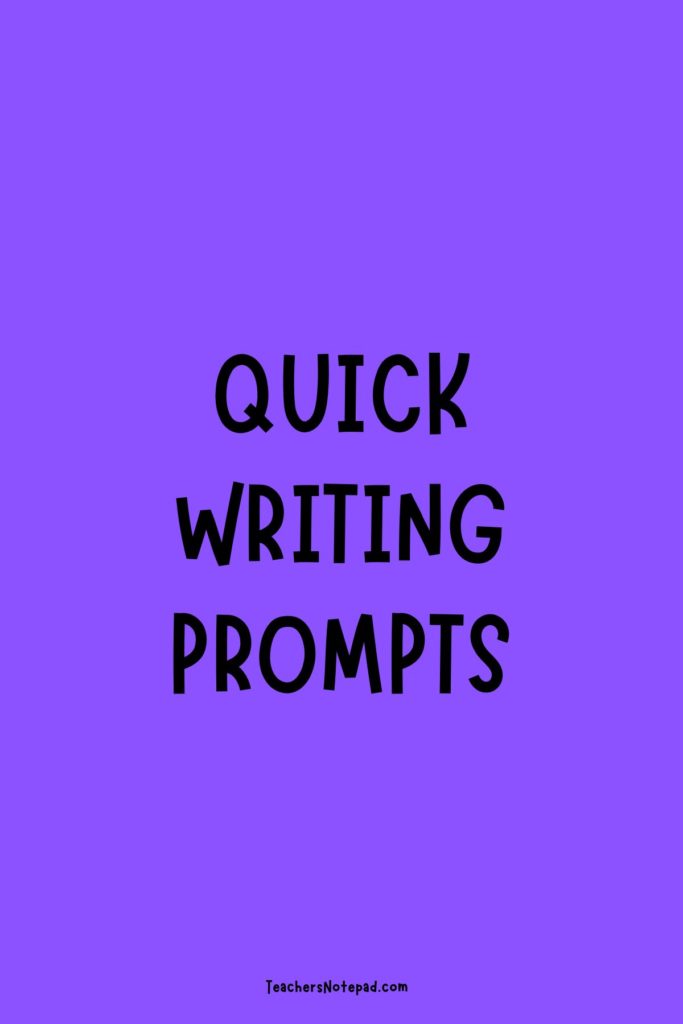

Choose Your Test
Sat / act prep online guides and tips, 105 creative writing prompts to try out.
General Education

The most common advice out there for being a writer is, "if you want to write, write." While this is true (and good advice), it's not always that easy, particularly if you're not writing regularly.
Whether you're looking for help getting started on your next project, or just want to spend 20 minutes being creative, writing prompts are great ways to rev up your imagination. Read on for our list of over 100 creative writing prompts!
feature image credit: r. nial bradshaw /Flickr
10 Short Writing Prompts
If you're looking for a quick boost to get yourself going, these 10 short writing prompts will do the trick.
#1 : Write a scene starting with a regular family ritual that goes awry.
#2 : Describe exactly what you see/smell/hear/etc, right now. Include objects, people, and anything else in your immediate environment.
#3 : Suggest eight possible ways to get a ping pong ball out of a vertical pipe.
#4 : A shoe falls out of the sky. Justify why.
#5 : If your brain were a tangible, physical place, what would it be like?
#6 : Begin your writing with the phrase, "The stage was set."
#7 : You have been asked to write a history of "The Summer of [this past year]." Your publisher wants a table of contents. What events will you submit?
#8 : Write a sympathetic story from the point of view of the "bad guy." (Think fractured fairy tales like Wicked or The True Story of the 3 Little Pigs! , although the story doesn't have to be a fairy tale.)
#9 : Look at everyday objects in a new way and write about the stories one of these objects contains.
#10 : One person meets a stranger on a mode of transportation. Write the story that ensues.

11 Writing Prompts for Kids
Any of these prompts can be used by writers of any age, but we chose the following 11 prompts as ones that would be particularly fun for kids to write about. (Most of them I used myself as a young writer, so I can vouch for their working!)
#1 : Include something falling in your writing.
#2 : Write a short poem (or story) with the title, "We don't know when it will be fixed."
#3 : Write from the perspective of someone of a different gender than you.
#4 : Write a dumb internet quiz.
#5 : Finish this thought: "A perfect day in my imagination begins like this:"
#6 : Write a character's inner monologue (what they are thinking as they go about their day).
#7 : Think of a character. Write a paragraph each about:
- An important childhood experience that character had.
- The character's living situation.
- Two hobbies or things the character likes to do.
- The room where the character sleeps.
- An ambition of the character.
- Two physical characteristics of the character.
- What happens when a second person and this character meet.
- Two important defining personal traits of this character.
#8 : Start a story with a quote from a song.
#9 : Begin a story with, "It was the summer of ______ when ______"
#10 : Pretend everyday objects have no names. Think about what you would name them based on what they do, what you can use them for, and what they look like.
#11 : Start a story with the phrases "My grandparents are/were," "My parents are/were," or "My mother/father/parent is/was."

15 Cool Writing Prompts
#1 : List five issues that you're passionate about. Write about them from the opposite point of view (or from the perspective of a character with the opposite point of view).
#2 : Walk around and write down a phrase you hear (or read). Make a story out of it.
#3 : Write using no adjectives or adverbs.
#4 : Write a character's inner dialogue between different aspects of a character's self (rather than an inner monologue).
#5 : Write a true story from your past that involves light or darkness in some way.
#6 : "Saying goodbye awakens us to the true nature of things." Write something in which someone has to say goodbye and has a realization.
#7 : Begin by writing the end of the story.
#8 : Write a recipe for an intangible thing.
#9 : Write a horror story about an ordinary situation (e.g., buying groceries, going to the bank, listening to music).
#10 : Write a story from within a bubble.
#11 : Write down 2-3 short character descriptions and then write the characters in conversation with one another.
#12 : Write a story in second person.
#13 : Write a story that keeps contradicting itself.
#14 : Write about a character with at least three big problems.
#15 : Write something that takes place on a Friday, the 13th (of any month).

15 Funny Writing Prompts
#1 : Write a story which starts with someone eating a pickle and potato sandwich.
#2 : Write a short script where the plot has to do with evil dolls trying to take over something.
#3 : Write about writers' block.
#4 : List five election issues that would be ridiculous to includes as part of your election platform (e.g. outlawing mechanical pencils and clicky pens, mandating every person over the age of 30 must own an emergency last rites kit). Choose one of the ridiculous issues and write a speech in favor of it.
#5 : Write a children's story that is insanely inappropriate but can't use graphic language, curses, or violence.
#6 : List five careers. Write about someone with one of those careers who wants to quit it.
#7 : Write down a list of murder methods. Choose one at random from the list to use in a story.
#8 : Write a romance story in which the hero must have a last name corresponding with a physical characteristic (e.g. Jacques Hairyback or Flora Dimple).
#9 : Come up with 10 different ways to:
- order a pizza
- congratulate someone on a job well done
- return to the store something that's broken
#10 : Search for "random Renaissance painting" (or any other inspirational image search text you can think of) on any online internet image search engine. Picking one image, write half a page each of:
- Statements about this image (e.g. "I meant bring me the BREAD of John the Baptist").
- Questions about this image (e.g. "How many of those cherubs look like their necks are broken?").
- Explanations of this image (e.g. "The painter ran out of blue paint halfway through and had to improvise for the color of the sky").
- Commands said by people in this image or about this image (e.g. "Stop telling me to smile!" or "Bring me some gasoline!").
#11 : Write starting with a word that sounds like "chute" (e.g. "chute," "shoot," "shooed").
#12 : Write about a character named X "The [article of clothing]" Y (e.g. Julie "The Yellow Darted Skirt" Whyte) or simply referred to by their clothing (e.g. "the man in the brown suit" or "the woman in black").
#13 : Write down a paragraph each describing two wildly different settings. Write a story involving both settings.
#14 : Think of a fictional holiday based around some natural event (e.g. the Earth being at its farthest point from the sun, in memory of a volcanic eruption, that time a cloud looked like a rabbit riding a bicycle). Write about how this holiday is celebrated.
#15 : Write a "Just-So" type story about a fictional creature (e.g. "how the dragon got its firebreath" or "how the mudkip got its cheek gills").

54 Other Writing Prompt Ideas
#1 : Borrow a character from some other form of media (or create your own). Write from that character's perspective.
#2 : Write for and against a non-consequential controversy (e.g., salt vs. pepper, Mac vs. PC, best kind of door).
#3 : Choose an ancestor or a person from the past to write about or to.
#4 : Write a pirate story with a twist.
#5 : Have a character talk about another character and their feelings about that other character.
#6 : Pick a season and think about an event in your life that occurred in that season. Write a creative nonfiction piece about that event and that season.
#7 : Think of something very complicated and long. Write a page about it using short sentences.
#8 : Write a story as a dream.
#9 : Describe around a food without ever directly naming it.
#10 : Write a monologue (one character, talking to the audience/reader) (*not* an inner monologue).
#11 : Begin a story with the phrase, "It only took five seconds to..."
#12 : List five strong emotions. Choosing one, write about a character experiencing that emotion, but only use the character's actions to convey how they are feeling (no outright statements).
#13 : Write a chapter of the memoir of your life.
#14 : Look through the (physical) things you're currently carrying with you or wearing. Write about the memories or emotions tied with each of them.
#15 : Go be in nature. Write drawing your story from your surroundings (both physical, social, and mental/emotional).

#16 : Write from the perspective of a bubble (or bubble-like creature).
#17 : A person is jogging along an asphalt road. Write a story.
#18 : Title your story (or poem, or play, etc) "Anti-_____". Fill in the blank and write the story.
#19 : Write something that must include an animal, a mineral, and a vegetable.
#20 : Begin your writing with the phrase, "6 weeks later..."
#21 : List 5-10 office jobs. Pick one of them and describe a person working in that job as if you were a commentator on an Olympic sporting event.
#22 : Practice your poetic imagery: overwrite a description of a character's breakfast routine.
#23 : Write about a character (or group of characters) trying to convince another character to try something they're scared of.
#24 : Keep an eye out in your environment for examples of greengrocer's apostrophes and rogue quotation marks. Pick an example and write about what the misplaced punctuation implies (e.g., we have the "best" meat or we have the best "meat" ).
#25 : Fill in the blank with the first word that comes to mind: "_______ Riot!" Write a newspaper-style article describing the events that that took place.
#26 : Write from the point of view of your most-loved possession. What does it think of you?
#27 : Think of five common sayings (e.g., "An apple a day keeps the doctor away"). Write a horror story whose plot is one of those common sayings.
#28 : Write a scene in which two characters are finally hashing out a long-standing misunderstanding or disagreement.
#29 : You start receiving text messages from an unknown number. Tell the story of what happens next.
#30 : Write one character bragging to another about the story behind their new tattoo.
#31 : Superheroes save the world...but they also leave a lot of destruction in their wake. Write about a normal person in a superhero's world.
#32 : Sometimes, family is who we are related to; sometimes, family is a group of people we gather around ourselves. Write a story about (some of) a character's found family and relatives meeting for the first time.
#33 : Write a story that begins in the middle of the plot's action ( en media res ).
#34 : Everyone says you can never have too much of a good thing. Write a story where that isn't true.
#35 : What do ghosts do when they're not creating mischief? Write about the secret lives of ghosts.

#36 : Every year, you dread the last week of April. Write a story about why.
#37 : Write a story about what it would be like to have an animal sidekick in real life.
#38 : Heists don't just have to be black-clad thieves stealing into vaults to steal rare art or money. Write about a group of people (adults or children) who commit a heist for something of seemingly little monetary value.
#39 : "Life is like a chooseable-path adventure, except you don't get to see what would have happened if you chose differently." Think of a choice you've made and write about a world where you made a different choice.
#40 : Write a story about a secret room.
#41 : You find a message in a bottle with very specific directions. Write a story about the adventure you embark upon.
#42 : "You'll always be okay as long as you know where your _______ is." Fill in the blank and write a story (either fictional or from your life) illustrating this statement.
#43 : Forcing people into prolonged proximity can change and deepen relationships. Write about characters on a road trip together.
#44 : In music, sonata form includes three main parts: exposition, development, and recapitulation. Write a short story that follows this format.
#45 : Begin writing with a character saying, "I'm afraid this simply can't wait."
#46 : Write a story with a happy ending (either happily-ever-after or happy-for-now).
#47 : Write about a character before and after a tragedy in that character's life.
#48 : Choose an object or concept you encounter in everyday life (e.g. tables, the feeling of hot or cold, oxygen) and write an infomercial about it.
#49 : "Life is a series of quests, whether important or mundane." Write about a quest you've gone on (or would like to go on, or will have to go on).
#50 : List 10 different ways to learn. Choose one (or more) and write a story where a character learns something using that one (or more) method.
#51 : You've been called to the principal's office for bad behavior. You know what you did. Explain and justify yourself.
#52 : A character discovers their sibling owns a cursed object. Write about what happens next.
#53 : Write a character description by writing a list of items that would be on a scavenger hunt about them.
#54 : The slogan for a product or service you're advertising is, "Kid-tested, _____." Fill in the blank and write the copy for a radio or podcast advertisement for your product.

How to Use Creative Writing Prompts
There's no wrong way to use a creative writing prompt (unless it's to harass and hurt someone)—the point of them is to get you writing and your imagination flowing.
To help you get the most out of these writing prompts, however, we've come up with the six tips below. Try them out!
#1: DON'T Limit Yourself to Prose
Unless you're writing for a particular assignment, there's no reason everything you write in response to a writing prompt has to be prose fiction . Instead of writing your response to a prompt as a story, try writing a poem, nonfiction essay, play, screenplay, or some other format entirely.
#2: DON'T Edit as You Write
The purposes of writing prompts is to get you writing, typos and weird grammar and all. Editing comes later, once you've finished writing and have some space from it to come back to what you wrote.
It's OK to fix things that will make it difficult to read what you've written (e.g., a weird autocorrect that changes the meaning of a sentence), but don't worry too much about typos or perfect grammar when you're writing; those are easy enough to fix in edits . You also can always insert asterisks or a short note as you're writing to remind yourself to go back to fix something (for instance, if as you're writing it seems like you want to move around the order of your paragraphs or insert something earlier).
#3: DO Interpret the Prompt Broadly
The point of using a writing prompt is not to write something that best exemplifies the prompt, but something that sparks your own creativity. Again, unless you're writing in response to an assignment with specific directions, feel free to interpret writing prompts as broadly or as narrowly as you want.
For instance, if your prompt is to write a story that begins with "The stage was set," you could write about anything from someone preparing to put a plan into motion to a literal theatre stage constructed out of pieces of old sets (or something else entirely).
If you're using a writing prompt, it doesn't have to be the first sentence of your story or poem, either; you can also use the prompt as a goal to work towards in your writing.
#4: DO Try Switching Up Your Writing Methods
If it's a possibility for you, see if you write differently in different media. Do you write the same kind of stories by hand as you would typing at a computer? What about if you dictate a story and then transcribe it? Or text it to a friend? Varying the method you use to write can affect the stories you're able to tell.
For example, you may find that it's easier for you to tell stories about your life to a voice recorder than to try to write out a personal essay. Or maybe you have trouble writing poetry, but can easily text yourself or a friend a poem. You might even find you like a writing method you've not tried before better than what you've been doing!

#5: DO Mix and Match Prompt Ideas
If you need more inspiration, feel free to combine multiple prompts (but don't overwhelm yourself with too much to write about).
You can also try switching genres from what might be suggested in the prompt. For instance, try writing a prompt that seems funny in a serious and sad way, or finding the humor in something that otherwise seems humorless. The categories we've organized the prompts into are by no means limiters on what you're allowed to write about.
#6: DO Try to Write Regularly
The more regularly you write, the easier it will be to write (with or without writing prompts).
For some people, this means writing daily; for others, it means setting aside time to write each weekend or each month. Set yourself an achievable goal (write 2x a week, write 1000 words a month) and stick to it. You can always start small and then ramp your wordcount or frequency up.
If you do better when you have something outside yourself prompting to write, you may also want to try something like morning pages , which encourages you to write at least 750 words every day, in any format (story, diary entry, social media postings, etc).

What's Next?
Thinking about attending college or grad school for creative writing? Our articles on whether or not you should major in creative writing and the best creative writing programs are there for you! Plus, if you're a high schooler, you should check out these top writing contests .
Creative writing doesn't necessarily have to be fiction. Check out these three examples of narrative writing and our tips for how to write your own narrative stories and essays .
Just as writing prompts can help give form to amorphous creative energy, using specific writing structures or devices can be great starting points for your next story. Read through our discussion of the top 20 poetic devices to know and see if you can work at least one new one into your next writing session.
Still looking for more writing ideas? Try repurposing our 100+ easy drawing ideas for characters, settings, or plot points in your writing.
Laura graduated magna cum laude from Wellesley College with a BA in Music and Psychology, and earned a Master's degree in Composition from the Longy School of Music of Bard College. She scored 99 percentile scores on the SAT and GRE and loves advising students on how to excel in high school.
Student and Parent Forum
Our new student and parent forum, at ExpertHub.PrepScholar.com , allow you to interact with your peers and the PrepScholar staff. See how other students and parents are navigating high school, college, and the college admissions process. Ask questions; get answers.

Ask a Question Below
Have any questions about this article or other topics? Ask below and we'll reply!
Improve With Our Famous Guides
- For All Students
The 5 Strategies You Must Be Using to Improve 160+ SAT Points
How to Get a Perfect 1600, by a Perfect Scorer
Series: How to Get 800 on Each SAT Section:
Score 800 on SAT Math
Score 800 on SAT Reading
Score 800 on SAT Writing
Series: How to Get to 600 on Each SAT Section:
Score 600 on SAT Math
Score 600 on SAT Reading
Score 600 on SAT Writing
Free Complete Official SAT Practice Tests
What SAT Target Score Should You Be Aiming For?
15 Strategies to Improve Your SAT Essay
The 5 Strategies You Must Be Using to Improve 4+ ACT Points
How to Get a Perfect 36 ACT, by a Perfect Scorer
Series: How to Get 36 on Each ACT Section:
36 on ACT English
36 on ACT Math
36 on ACT Reading
36 on ACT Science
Series: How to Get to 24 on Each ACT Section:
24 on ACT English
24 on ACT Math
24 on ACT Reading
24 on ACT Science
What ACT target score should you be aiming for?
ACT Vocabulary You Must Know
ACT Writing: 15 Tips to Raise Your Essay Score
How to Get Into Harvard and the Ivy League
How to Get a Perfect 4.0 GPA
How to Write an Amazing College Essay
What Exactly Are Colleges Looking For?
Is the ACT easier than the SAT? A Comprehensive Guide
Should you retake your SAT or ACT?
When should you take the SAT or ACT?
Stay Informed
Get the latest articles and test prep tips!
Looking for Graduate School Test Prep?
Check out our top-rated graduate blogs here:
GRE Online Prep Blog
GMAT Online Prep Blog
TOEFL Online Prep Blog
Holly R. "I am absolutely overjoyed and cannot thank you enough for helping me!”

Literacy Lines
Home » Literacy Lines » The Power of Quick Writes
The Power of Quick Writes
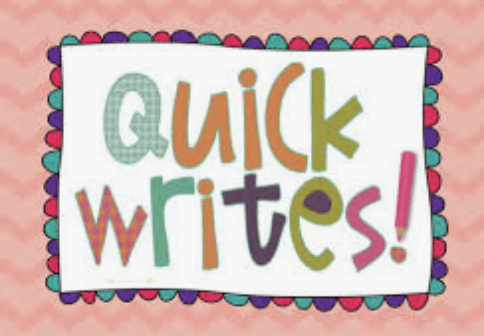
I recently read an Edutopia blog post by Benjamin Barbour titled “The Power of Short Writing Assignments” just after delivering a professional development workshop about Quick Writes from my Keys to Content Writing teacher training program. I knew I had to make this the topic of my next blog post!
Barbour makes this point, “Some educators avoid assigning writing, believing that they don’t have the time to either incorporate such a project or grade it. Thankfully, writing assignments need not be long in order to be effective. If you don’t wish to assign a potentially time-consuming project, try these short assignments to help students become better writers and thinkers.” He goes on to suggest several types of quick write tasks.
In Keys to Content Writing , Grades 3-6 and Grades 6-12 , we note that there are three kinds of subject-area writing tasks that can be assigned to support the learning of content:
- Quick Writes: completed in less than ten minutes; objective is to process, reflect on, or assess content learning; typically is not revised; informally evaluated and not graded
- Content Learning Tasks: take 1 or more sessions to complete; objective is to deepen understanding and reflection or assess content learning; may be revised; may be informally evaluated; typically graded
- Longer, Formal Writing Tasks: take multiple session to complete; objective is to deeply learn content, develop authentic writing skills, prepare for on-demand writing; revised; formally evaluated and graded.
All three kinds of tasks can be used to have students write to learn content. But Quick Writes are so powerful because they do not require a significant amount of planning and do not cause student anxiety the way the other two tasks often do.
The prolific writer Stephen King says, “If you want to be a good writer you must do two things above all others: read a lot and write a lot.” The Common Core Writing Standard #10 also emphasizes writing a lot , requiring students to “write routinely over extended time frames and shorter time frames for a range of tasks, purposes, and audiences.”
Quick Writes are short, informal writing tasks that can be assigned during class or as brief, out-of-class assignments. Quick Writes help students remember, organize, and manage information, and they can be used at any point in a classroom lesson to help them communicate their thoughts, experiences, and reactions to what they are reading and learning. They can also be used as formative assessment to determine how well students have learned content.
Here are some examples of Quick Write tasks:
- admit and exit tickets
- informal notes/scribbles
- margin notes while reading
- list of facts, steps, ideas
- set of instructions or directions
- filling in a graphic organizer or completing a set of notes
- free -writing: write on a topic for a short specified amount of time (also called a “brain dump”)
- one-paragraph summary
- generate a few questions
- KWL Chart (What I know, What I Want to Know, What I Learned)
- write a definition in your own words
- draw, label, or explain pictures/diagrams
- short-answers to questions
- sentence combining
- short communication wit someone else (email, tweet, note, text message)
Using Questions for Quick Writes
When students respond to questions in writing, their ability to process and remember content information improves. Here are some suggestions for general questions that can be used in all content areas:
- What was the most important thing you learned from your homework assignment or reading?
- What questions do you have about your homework assignment or reading?
- What are you most interested in discussing or learning in today’s class?
- What was the most important thing you learned today?
- What do you want to learn more about?
- What was confusing, or is there something you would like explained better?
Click here to download a template for admit and exit tickets.
Visit the Keys to Literacy website “free resources” section under writing for more writing templates and support materials.
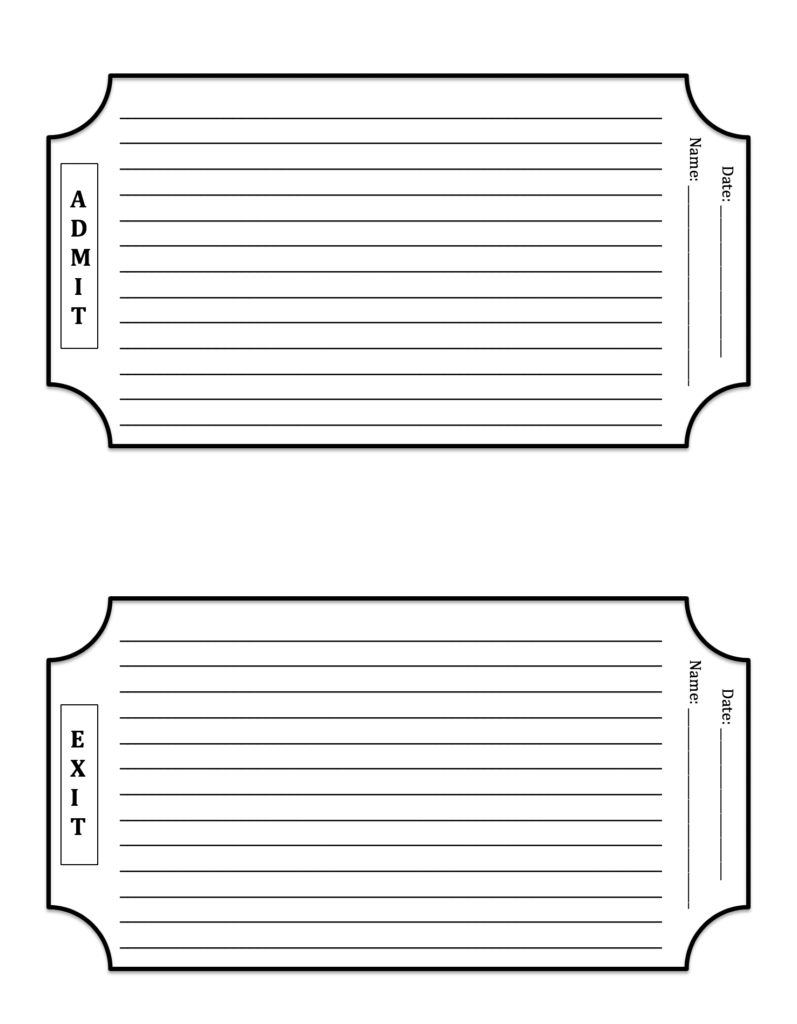
- Joan Sedita

Leave a Reply
Cancel reply.
Your email address will not be published. Required fields are marked *
Would photographs or other visuals show details better than you can describe them with words alone? If you’re writing about learning to read, for example, you might scan in an image of one of the first books you read in order to help readers picture it. Or if your topic is learning to write, you could include something you wrote.
Yes, visuals are also a helpful way to support quick writes!
Thank you so much for the information and resources on “quick writes.” I feel more confident and informed about how to implement “quick writes” and will definitely be passing this on to teachers.
You are welcome Melissa!
Thank you for this infomation.
Subscribe by Email
- Adolescent Literacy
- Brain and Literacy
- Close Reading
- College and Career Ready
- Common Core
- Complex Text
- Comprehension Instruction
- Content Literacy
- Decoding and Fluency
- Differentiated Fluency
- Differentiated Instruction
- Digital Literacies
- Disciplinary Literacy
- Elementary Literacy
- English Language Learners
- Grammar and Syntax
- High School Literacy
- Interventions
- Learning Disabilities – Dyslexia
- Middle School Literacy
- MTSS (Multi-Tiered Systems of Support)
- PK – Grade 3 Literacy
- Professional Development
- RTI (Response to Intervention)
- Special Education
- Teacher Education
- Teacher Evaluation
- Text Structures
- Uncategorized
- Vocabulary Instruction
- Writing Instruction
Posts by Author
- Becky DeSmith
- Donna Mastrovito
- Brad Neuenhaus
- Shauna Cotte
- Sue Nichols
- Amy Samelian
- Colleen Yasenchock
- Maureen Murgo
- melissa powers
- Sande Dawes
- Stephanie Stollar
ACCESSING KEYS TO LITERACY PD DURING SCHOOL CLOSURES
We are closely monitoring the covid-19 situation and the impact on our employees and the schools where we provide professional development., during this time period when onsite, face-to-face training and coaching is not possible, we offer multiple options for accessing our literacy pd content and instructional practices., if you are a current or new partner, explore our website or contact us to learn more about:.
- Live virtual training, coaching
- Facilitated and asynchronous online courses
- Free webinars and resources
[email protected] 978-948-8511
- Join Membership
- English Teacher Vault
- What's Included
- Try Out Free Lessons
- Yes, I'm Ready

10 Short Writing Topics For Teens That Will Build Better Writers
Allowing your students to practice writing in small chunks of time will help them become better writers, and with these short writing topics for teens, your students won’t have to come up with a topic to write about on their own.
What Are Quick Writes?
Quick writes are writing prompts that are completed within a few minutes (usually 10 minutes or less) in class. They are low stakes and are designed to be engaging.

The Benefits of Using Quick Writes For High School Students:
There are lots of benefits of quick writes; here are just a few:
They are low stakes.
First, they allow your students to practice writing in a low-stakes way, and this is critical. To build better writers you have to allow students many opportunities to write. Most of these opportunities should be in informal ways.
They allow students to form their voice and style.
The most effective way I’ve found to guide students toward developing their own voice and writing style is to provide many low-stakes, informal writing opportunities. Students must be able to play around with language to develop their sense of style because it gives them an opportunity to take risk without being penalized.
They can build class community.
If you use engaging topics, students will actually enjoy writing! And typically, when students enjoy doing something, they want to share. With the writing topics I provide below, students get a chance to share their personal tastes, preferences, and parts of their life story that makes them who they are. So, take the opportunity to let volunteers share their responses and allow them to get to know each other and form connections with their classmates.

Quick Writes can allow students to work on craft.
The Language Arts Classroom highlights the power of focusing on only one area of writing when helping students through the writing process. You can use quick writes for this purpose as well. You can assign a quick write, but ask students to focus on using at least one compound sentence, or an opening adjective.
By telling them a specific area in which to focus, you’ll guide students toward thinking about the craft of their writing. When they know this assignment will not ultimately turn into an essay or be attached to a grade, they’ll have a certain freedom in the way they write.
Quick writes allow you to connect grammar and writing.
This is such a super way to integrate grammar and writing practice. So many studies show that you must integrate grammar into writing and literature for grammar concepts to stick. If you’d like to read more about that, check out my blog post: How to Teach Nouns, Verbs, Adjectives, and Adverbs or this article from The Atlantic on the topic of The Wrong Way To Teach Grammar .

Often we think that the way to connect grammar and writing is by grading students’ writing based on their grammar conventions. And yes, that should happen. But this is a way to connect the two concepts without a grade, and that will allow for more learning to happen.
High school English teacher Blake Bockholt describes how he does this in the New York Time's Article: Sentences That Matter, Mentor, and Motivate.
Blockholt says, "To help my students transfer their new grammar skills into their writing I ask them to implement the skills into other writing assignments. For example, in their Article of the Week reflections (which I adapt from the Learning Network’s Lesson of the Day) , students are required to use a recently taught grammar skill and highlight that sentence. I don’t usually grade students on their grammar, but I tell them their highlighted sentence better be correct."
This is the same way I use quick writes, by requiring students to write as freely as they'd like to, but they must carefully craft one sentence in the response and highlight that sentence.

How I Suggest Using Quick Writes In High School:
1.) use them regularly..
I don't necessarily suggest that you short writing prompts and quick writes every single class period, but some teachers see vast improvement in student writing by using quick writes daily, like college instructor Tessa Ward who describes her experience in the article “6 Ways To Use Quick Writes To Promote Learnin g ." She says that after using writing prompts daily that "within a few weeks, students who began the semester afraid of writing or unsure that they have anything to write about are writing a page or more."
There is a benefit to creating a routine with quick writes, whether it's every day or 2-3 times a week. Students become more comfortable with writing by having many opportunities to write.
2.) Connect quick writes to grammar concepts.
As I mentioned above, this is such a great opportunity to make grammar relevant, so whenever possible, tie it into a grammar concept you’ve taught, whether that has to do with parts of speech, phrases, or sentence variety.
10 Quick Write Topics You Can Use!
These are all quick writes I wrote that I connect to grammar concepts in my year-long curriculum for 9th and 10th graders, which you can read more about here: Learning Grammar With Mentor Sentences.
1. Who is one person, living or dead, you wish you could meet? Where would you meet up with them, and what's something you'd ask them? Include specific/proper nouns, and highlight all your proper nouns when you are done.
2. Describe your idea of a dream job. What would your responsibilities be, and what would your typical day be like? Focus on your vivid verbs and highlight these when you are finished writing.
3. If someone gave you $10,000 today, how would you spend it? Be detailed, and focus on using adjectives. Try to include at least one opening adjective. Highlight all your adjectives when you're done.
4. Think of a superhero you've seen in a movie or read about in a book, or create your own superhero. Imagine what his or her childhood might have been like, and describe it. Try to use at least one sentence with both a delayed adjective and a vivid verb. Highlight that sentence.

5. What is one grievance you have about your school or your education? Use at least one sentence with an adjective AND an adverb. Highlight this sentence.
6. Describe one book or movie that had an ending you hated. Why was it unsatisfying? Include adverbs in your description, and try to include at least one delayed adverb. Highlight all your adverbs when you are finished.
7. Who is the hardest working person you've ever known? You could know them personally or have read about them/follow them. Write about them. Include one appositive somewhere in your response and highlight that sentence.
8. Has a song or a movie ever deeply impacted your life? Describe the song or movie and how it affected you. Use one participle somewhere in your response and highlight that sentence.
9. Create a scene full of tension, intrigue, or anticipation. Try to describe the scene in only simple sentences.
10. If you had to be one, would you rather be a great artist, a great athlete, or a great chess player? Describe why you'd choose that one and what makes it more appealing than the others. Use at least two compound sentences in your response and underline those sentences.

The benefits of using quick writes in your classroom are well-researched and worth the effort, so I hope you are able to bring several of these writing topics for teens into your regular routine this year!
Get access to all of these writing prompts and over 100 more resources when you join the English Teacher Vault. Check it out here!
Related Reading:
Writing Journals For Teens
Simple Strategies For Using The NY Times In Your Classroom

Leave a comment
Please note, comments must be approved before they are published
Want a free unit plan?
Yes! Send me the parts of speech complete unit!
100 Writing Practice Lessons & Exercises
by Joe Bunting | 50 comments
Free Book Planning Course! Sign up for our 3-part book planning course and make your book writing easy . It expires soon, though, so don’t wait. Sign up here before the deadline!
Want to become a better writer? Perhaps you want to write novels, or maybe you just want to get better grades in your essay writing assignments , or maybe you'd like to start a popular blog .
If you want to write better, you need practice. But what does a writing practice actually look like? In this post, I'm going to give you everything you need to kick off your writing practice and become a better writer faster.

What Is Writing Practice?
Writing practice is a method of becoming a better writer that usually involves reading lessons about the writing process, using writing prompts, doing creative writing exercises , or finishing writing pieces, like essays, short stories , novels , or books . The best writing practice is deliberate, timed, and involves feedback.
How Do You Practice Writing?
This was the question I had when I first started The Write Practice in 2011. I knew how to practice a sport and how to practice playing an instrument. But for some reason, even after studying it in college, I wasn't sure how to practice writing.
I set out to create the best writing practice I could. The Write Practice is the result.
I found that the best writing practice has three aspects:
Deliberate . Writing whatever you feel like may be cathartic, but it's not an effective way to become a better writer or build your writing skills. You'll get better faster by practicing a specific technique or aspect of the writing process each time you sit down to write.
This is why we have a new lesson about the writing process each day on The Write Practice, followed by a practice prompt at the end so you can put what you learned to use immediately.
Timed . It's no secret writers struggle with focus. There are just too many interesting distractions—Facebook, email, Kim Kardashian's Instagram feed (just kidding about that last one, sort of)—and writing is just too hard sometimes.
Setting a timer, even for just fifteen minutes, is an easy and effective way to stay focused on what's important.
This is why in our writing practice prompt at the end of each post we have a time limit, usually with a link to an online tool egg timer , so you can focus on deliberate practice without getting distracted.
Feedback . Getting feedback is one of the requirements to deliberately practice writing or any other craft. Feedback can look like listening to the reactions of your readers or asking for constructive criticism from editors and other writers.
This is why we ask you to post your writing practice after each lesson, so that you can get feedback from other writers in The Write Practice community. It's also why we set up The Write Practice Pro community , to provide critique groups for writers to get feedback on each finished piece of writing.

Our 100+ Best Creative Writing Practice Exercises and Lessons
Now that you know how we practice writing at The Write Practice, here are our best writing practice lessons to jumpstart your writing skills with some daily writing exercises, for beginner writers to even the most expert writers:
All-Time, Top 10 Writing Lessons and Exercises
These ten posts are our most viewed articles to boost your writing practice:
1. What is Plot? The 6 Elements of Plot and How to Use Them . Great stories use similar elements in wildly different ways to build page-turning stories. Click here to read what they are and learn how to start using them !
2. Top 100 Short Story Ideas . Here are over a hundred writing prompts in a variety of genres. If you need ideas for your next story, check this out!
3. How To Use Neither, Nor, Or, and Nor Correctly . Even good writers struggle figuring out when to use neither/nor and either/or. In this post, our copy-queen Liz Bureman settles the confusion once and for all. Click to continue to the writing exercise
4. Ten Secrets To Write Better Stories . How does Pixar manage to create such great stories, year after year? And how do you write a good story? In this post, I distill everything I've learned about how to write a good story into ten tips. Click to continue to the writing exercise
5. 35 Questions To Ask Your Characters From Marcel Proust . To get to know my characters better, I use a list of questions known as the Proust Questionnaire, made famous by French author, Marcel Proust. Click to continue to the writing exercise
6. How a Scene List Can Change Your Novel-Writing Life . Creating a scene list changed my novel-writing life, and doing the same will change yours too. Includes examples of the scene lists from famous authors. Click to continue to the writing exercise
7. Why You Need to be Using the Oxford Comma . Most people I've met have no idea what the Oxford comma is, but it's probably something that you have used frequently in your writing. Click to continue to the writing exercise
8. Six Surprising Ways to Write Better Interview Questions. The interview is the most-used tool in a journalist's bag. But that doesn't mean novelists, bloggers, and even students can't and don't interview people. Here's how to conduct a great interview. Click to continue to the writing exercise
9. Why You Should Try Writing in Second Person . You've probably used first person and third person point-of-view already. But what about second person? This post explains three reasons why you should try writing from this point-of-view. Click to continue to the writing exercise
10. The Secret to Show, Don't Tell . You've heard the classic writing rule, “Show. Don't Tell.” Every writing blog ever has talked about it, and for good reason. Showing, for some reason, is really difficult. Click to continue to the writing exercise.

12 Exercises and Lessons To Become a Better Writer
How do you become a better writer? These posts share our best advice:
- Want to Be a Better Writer? Cut These 7 Words
- What I Mean When I Say I Am A Writer
- How to Become a Writer: 3 Simple Steps
- 72% of Writers Struggle With THIS
- 7 Lies About Becoming a Writer That You Probably Believe
- 10 Questions to Find Your Unique Writing Voice
- The Best Writing Book I’ve Ever Read
- The Best Way to Become a Better Writer
- The Creative Writer’s Toolkit: 6 Tools You Can’t Write Without
- Should You Write More or Write Better: Quantity vs Quality
- How to Become a Better Writer in One, Simple Step
- 11 Writing Tips That Will Change Your Life
6 Lessons and Exercises from Great Writers
If you want to be a writer, learn from the great writers who have gone before you:
- 23 Essential Quotes from Ernest Hemingway About Writing
- 29 Quotes that Explain How to Become a Better Writer
- 10 Lessons Dr. Seuss Can Teach Writers
- 10 Writing Tips from Ursula Le Guin
- Once Upon a Time: Pixar Prompt
- All the Pretty Words: Writing In the Style of Cormac McCarthy
12 Genre and Format Specific Writing Lessons and Exercises
Here are our best writing lessons for specific types of writing, including essays, screenplays, memoir, short stories, children's books, and humor writing:
- Writing an Essay? Here Are 10 Effective Tips
- How To Write a Screenplay: The 5 Step Process
- How to Write a Great Memoir: a Complete Guide
- How to Write a Short Story from Start to Finish
- How to Write a Thriller Novel
- How to Write a Children's Book
- How to Write a Love Story
- How to Write a Coming of Age Story or Book
- How to Write an Adventure Book
- 5 Key Elements for Successful Short Stories
- 4 Tips to Write a Novel That Will Be Adapted Into a Movie
- Humor Writing for People Who Aren’t Funny
14 Characterization Lessons and Exercises
Good characters are the foundation of good fiction. Here are our best lessons to create better characters:
- Character Development: How to Create Characters Audiences Will Love
- Writing Villains: 9 Evil Examples of the Villain Archetype
- How NOT to Introduce a New Character
- The Strongest Form of Characterization
- The Most Important Character Archetype
- How Do You Build A Strong Character In Your Writing?
- 75+ Antihero Examples and How to Use Them
- How to Explore Your Characters’ Motivations
- 8 Tips for Naming Characters
- The Protagonist: How to Center Your Story
- Heroes vs. Anti-Heroes: Which Is Right For Your Story?
- The Weakest Form of Characterization
- How to Write With an Accent
- How To Create a Character Sketch Using Scrivener
15 Grammar Lessons and Exercises
I talk to so many writers, some of whom are published authors, who struggle with grammar. Here are our best writing lessons on grammar:
- Is It Okay To End A Sentence With A Preposition?
- Contractions List: When To Use and When To Avoid
- Good vs. Well
- Connotation vs. Denotation
- Per Se vs. Per Say
- When You SHOULD Use Passive Voice
- When Do You Use “Quotation Marks”
- Polysyndeton and Asyndeton: Definition and Examples
- The Case Against Twilight
- Affect Versus Effect
- Stop Saying “Literally”
- What Is a Comma Splice? And Why Do Editors Hate Them?
- Intra vs. Inter: Why No One Plays Intermural Sports
- Alright and Alot: Words That Are Not Words
- The Poor, Misunderstood Semicolon
4 Journalism Lessons and Exercises
Want to be a journalist? Or even use techniques from journalism to improve your novel, essay, or screenplay? Here are our best writing lessons on journalism:
- Six Ways to Ask Better Questions In Interviews
- How Should You Interview Someone? Over Email? In Person?
- What If They Don’t Want to Talk to You?
- Eleven Habits of a Highly Effective Interviewers
16 Plot and Structure Lessons and Exercises
Want to write a good story? Our top plot and structure lessons will help:
- The Ten Types of Story and How to Master Them
- Points of a Story: 6 Plot Points Every Story Needs
- How to Shape a Story: The 6 Arcs
- 7 Keys To Write the Perfect First Line of a Novel
- The Secret to Creating Conflict
- 4 Tips to Avoid Having Your Short Story Rejected by a Literary Magazine
- 7 Steps to Creating Suspense
- 5 Elements of Storytelling
- 3 Important Rules for Writing Endings
- A Writer’s Cheatsheet to Plot and Structure
- Overcoming the Monster
- How to Satisfy Your Reader With a Great Ending
- Pow! Boom! Ka-Pow! 5 Tips to Write Fight Scenes
- The Dramatic Question and Suspense in Fiction
- How to Write a Memorable Beginning and Ending
- How to Write the Perfect First Page
6 Lessons and Exercises to Beat Writer's Block
Writer's block is real, and it can completely derail your writing. Here are six lessons to get writing again:
- How To Write Whether You Feel Like it Or Not
- This Fun Creative Writing Exercise Will Change Your Life
- When You Should Be Writing But Can't…
- What to do When Your Word Count is Too Low
- 7 Tricks to Write More with Less Willpower
- When You Don’t Know What to Write, Write About Your Insecurities
7 Literary Technique Lessons and Exercises
These writing and storytelling techniques will teach you a few tricks of the trade you may not have discovered before:
- 3 Tips to “Show, Don’t Tell” Emotions and Moods
- 3 Reasons to Write Stream of Consciousness Narrative
- 16 Observations About Real Dialogue
- Intertextuality As A Literary Device
- Why You Should Use Symbolism In Your Writing
- 6 Ways to Evoke Emotion in Poetry and Prose
- 3 Tips To Write Modern Allegorical Novels
- Symbol vs. Motif: What’s the Difference
3 Inspirational Writing Lessons and Exercises
Need some inspiration? Here are three of our most inspiring posts:
- Why We Write: Four Reasons
- You Must Remember Every Scar
- 17 Reasons to Write Something NOW
3 Publishing Blogging Lessons and Exercises
If you want to get published, these three lessons will help:
- The Secret to Writing On Your Blog Every Day
- How to Publish Your Book and Sell Your First 1,000 Copies
- How to Get Published in Literary Magazines
11 Writing Prompts
Need inspiration or just a kick in the pants to write. Try one of our top writing prompts :
- Grandfathers [writing prompt]
- Out of Place [writing prompt]
- Sleepless [writing prompt]
- Longing [writing prompt]
- Write About Yourself [writing prompt]
- 3 Reasons You Should Write Ghost Stories
- Road Trip [writing prompt]
- Morning [writing prompt]
- The Beach [writing prompt]
- Fall [writing prompt]
- How to Use Six-Word Stories As Writing Prompts
Is It Time To Begin Your Writing Practice?
It's clear that if you want to become a writer, you need to practice writing. We've created a proven process to practice your writing at The Write Practice, but even if you don't join our community, I hope you'll start practicing in some way today.
Personally, I waited far too long to start practicing and it set my writing back years.
How about you? Do you think practicing writing is important? Let me know in the comments section .
Choose one of the writing practice posts above. Then, read the lesson and participate in the writing exercise, posting your work in the Pro Practice Workshop . And if you post, please give feedback to your fellow writers who also posted their practices.
Have fun and happy practicing!
Joe Bunting
Joe Bunting is an author and the leader of The Write Practice community. He is also the author of the new book Crowdsourcing Paris , a real life adventure story set in France. It was a #1 New Release on Amazon. Follow him on Instagram (@jhbunting).
Want best-seller coaching? Book Joe here.

50 Comments
You have THE BEST content for writing on this blog!!
Thank you, Kristen. This made my morning. 🙂
Thanks Mitch. 🙂
I can’t remember when I started following this website. I have to look in my notebooks because that’s where I did these practices. I didn’t have access to a computer when I did them, so I wrote them out, setting the time limit. But even when I do get to a computer, I have my reservations about putting my practices on the page. even though it’s practice, I want them to be the best, almost perfect. But I know it won’t be. I’ve gotten feedback before that says so. It still gets to me that I didn’t put something together that not everyone liked. I need to get over it. After all, that is what these practices are about: to learn and improve on our craft.
I don’t know either, George, but it’s been several years. Perfectionism is something so many of us face, and it’s made worse when you don’t have a critique community as warm and encouraging as ours is. I hope you and everyone here are always willing to try something new, even if it comes out a little messed up, because you know we’ll support you and try to make you better.
What a great share! Thanks so much!
You’re so welcome, Elizabeth. Thank you for commenting.
when I ran writing classes I wrote. when I am “a member of writing classes” the teacher/leader/facilitator is NOT MY AUDIENCE and so I don’t write as well/as much. I don’t get the feedback I need from fellow students because most of them have never run their own writing projects/workshops. So many people expect you to write their story for them. I’ve actually got quite a few stories of me own. I have finally decided I like owning them. 😉
It sounds like you need a new critique group, Patience! Hope you can find a place where you get the feedback you need.
Wow! Terrific round-up of resources. 🙂
Thanks Stephanie. 🙂
Practice is necessary, period. It doesn’t matter what you want to learn. If you want to improve, practice is vital.
It’s odd. I’ve known and applied that principle for years on a variety of things. Painting. Drawing. Blogging. Gardening. Laundry.
But never writing.
Like you, I had the notion that just writing every day was all it took to improve. Why not the same level of dedication to writing?
Perhaps it’s time to change that!
I can relate, Carrie. It’s easy to confuse the craft of writing with journaling, thinking that you can just write whatever you feel like and you’ll get better, write something worth reading. The truth is that writing interesting things to read is a skill, but the good news is that you can get better at it with practice. Thanks for practicing with us! 🙂
I love these suggestions , and have set Writing Practice as my homepage so the first 15 minutes of my day is spent writing, whether its a practice or exercise here or another that is sprinkled through out this site, Thank you for all you do everyone here at The Write Practice
This is great Debra. I want to write the first 15 minutes of my day too!
I agree with Joe, Do it. Could be your to do list… ( that could lead to something else story wse later)
I love that, Debra. Such a good way to start your day.
Thanks Joe!
The best! Thank you so much for this.
You’re very welcome!
I simply LOVE all the tips and suggestions given on this blog. They are super helpful!
THANK you. We love sharing them with you. 🙂
Hi! You forgot the link to How to Write a Story a Week: A Day-by-Day Guide.
Thanks a lot for your work! This post is amazing.
It’s a great post Thiago. Definitely one of our most shared. Thanks for mentioning it! BTW here’s the link:
https://thewritepractice.com/a-story-a-week/
Wow!! There are so many exercises…. I just love it..! I am gonna really enjoy it..!
Awesome! Thank you for reading and practicing with us. 🙂
I only read halfway , My tootie is jumping all over me, and typing this is a struggle when a 3yr old wants his Toy Story movie on Youtube in this computer. Thank you for this article, will come back later to finish reading.
I know the feeling! Good luck!
Can’t wait to get stuck in with this! 🙂
Very helpful! Thank you!
I’ve just bookmarked this page. Thanks for this wonderful list.
This is awesome! So many helpful tips. I will be coming back to this often. Thanks for posting this!
Wow, so many goodies! Thank you for always providing such amazing content!!
I have enjoyed all these articles. Thank you for the help an inspiration to get my writing on its way. My creativity is boosting with confidence. Tootle loo.
Amazing contents for beginners like me Joe. I am highly inspired by your commitment. Thank you.
Hey, thanks!
Although I have only read half of thisc article, the practice exercises are excellent. Some of them are exactly what a beginning writer like myself needs. I am committing to at least try ALL of them. Thanks Joe!!
very helpful! thank you..
Amazing articles! Thanks so much for sharing!
My god this article made me love this site . You know it’s kinda hard for a beginner writer, who don’t know where to start and fixing goals, even samll ones give us a direction . A place to go , an aim for our creativity so thanks you , this community and this site. Love you all . At your pens ! 😉
Wow. This is great. I find all your posts informative, but this one is the best for me to use as a guide to get my self starting to write….Thank you.
I’m an old lady who wants to publish one more book before I die — have published several, all non-fiction, and done two under contract to a major publisher (reference books). So help me, the BIGGEST problem I have all along, is keeping track of the damned paper work and research that goes into a book!!! Yet I never ever see articles on something as simple as “How to file” — Oh I know, there’s wonderful software these days so probably I will never find a way to get paper organized — everybody will use software and do it on the computer. I’m too old for that — just one look at the learning curve for software, even putting the damned stuff into computer files is even MORE frustrating than paper!! Oh well, somehow I managed in the past to get books published, I may be able to do it one more time.
you enjoy writing more than anything else and you do indeed care to help others write. I love writing but translation from Arabic into English and English into Arabic is taking all of my time from the early hours of the morning till the evening. I will soon get all of your books in order to read them as soon as possible. One thing I am sure of. You know what you are doing very well. Hamzah
Excellent! Many useful tips. Many thanks!
Liz and Joe, I have only looked at a few exercises. Already, I am convinced that your site is one of the best sites out there. Thank your for sharing your wisdom.
Wow, these are the best lessons and exercises for writing. Actually i’m participating in a compitition this wendsday. so, i’m quite nervous and exited. this helped me a lot
Magnificent post ever I have read. This article will help me a lot to write a right way. Thank you.
i need your help to improve to become a better writer please. i think i usually commit moist of these errors and i don;t pay attention to many advices too.
Trackbacks/Pingbacks
- OTR Links 08/17/2015 | doug — off the record - […] 100 Writing Practice Lessons & Exercises […]
- Join the Wacky Writing Prompt Scavenger Hunt (and win silly prizes) - […] Looking for more awesome writing prompts? Find our top 100 writing prompts and writing exercises here » […]
- 5 Hacks to Create a Good Writing Habit - […] To keep yourself focused as you write, consider writing with a timer. […]
- The Only Habit You Need as a Writer - […] It’s the same formula for writing: practice, practice, practice. […]
- Last Week Links For 11/2-11/7 | B. Shaun Smith - […] 100 Writing Practice Lessons & Exercises […]
- 9 blogs per a amants de l’escriptura creativa | Raquel Picolo - […] 100 Writing Practice Lessons & Exercises […]
- 5 Out-of-the-Box Writing Prompt Sources by Emily Wenstrom | ARHtistic License - […] Fortunately, you don’t have to just sit there and take it—there’s ways to take matters into your own hands…
- 100 Writing Practice Lessons & Exercises | dkstevens327 - […] https://thewritepractice.com/writing-practice […]
- 10 Short Story Ideas - […] share it with a friend or join a writing critique group. Feedback is the most important piece of a good…
- 100 Writing Practice Lessons & Exercises - I'm a Writer! - […] Source: 100 Writing Practice Lessons & Exercises […]
- Prompted again… – My Journal-Blog - […] I’ve decided to not go to The daily post to get prompted for my blog post. Instead, I went…
- Writing | Writing in the Real World - […] Here is a link to some practice exercises to help you start writing: Practice! […]
- Writing Exercises for Authors | Writing Prompt Contests - […] for their informative articles and writing exercises, The Write Practice has another list of ten of writing exercises to…
- Frankfort Writers Center » Want to Be a Better Writer? Practice Writing - […] Bunting’s website, The Write Practice, especially this post which features 100 Top Writing Practice Lessons and Exercises, is loaded with tips…
- Want to Be a Better Writer? Practice Writing - Charity Singleton Craig - […] Bunting’s website, The Write Practice, especially this post which features 100 Top Writing Practice Lessons and Exercises, is loaded with tips…
- How to Practice Writing Like Van Gogh Practiced Painting | Creative Writing - […] or describing a person we’ve seen, or building an image of a place we’ve been, we practice writing and…
- What’s Really Keeping You from Writing? | Creative Writing - […] wants to succeed and be good at what they do. But we don’t become the best at something without…
- Intro – Site Title - […] to play at least 20 minutes a day. Essay: I am a very slow writer, so I challenge myself…
- Top 20 of Best Writing Blogs Recommended Most Times by Writing Pros - Consultants 500 - […] Handy Resources: JK Rowling’s 8 Rules of Writing Want to Be a Better Writer? Cut These 7 Words 7…
- Ultimate Guide on How to Be an Author - Author LaVera Edick - […] Learning good writing practices from the experienced authors is one of the best way to acquire sufficient knowledge in…
- 5 Tips to Transform Your Loneliness Into Self Reflection – everydaypower-com - […] your head by free writing for 10 minutes. Just write down whatever is on your mind. Afterwards, be a…
- Your First Writing Practice - […] how fifteen minutes of creative writing each day could change your life. Fifteen minutes of writing practice a day, and…
- Writing Workshop: Can a Workshop Help You Become a Better Writer? - […] Lessons on the creative writing process. […]
- Writing Workshop: Can a Writing Workshop Help You Become a Better Writer? – Books, Literature & Writing - […] Lessons on the creative writing process. Structured time to plan your writing piece and brainstorm story ideas Structured writing…
- Writing Prompt: Two Reasons to Write About Departures - […] or a job in a new city, departures can be stressful, exciting, and full of conflict. Use this prompt…
- Two Reasons to Write About Departures – Lederto.com Blog - […] or a job in a new city, departures can be stressful, exciting, and full of conflict. Use this prompt…
- Two Reasons to Write About Departures | Blog Writing Services - […] or a job in a new city, departures can be stressful, exciting, and full of conflict. Use this prompt…
- What’s the most useful marketing tip you’ve found from this post? - […] or a job in a new city, departures can be stressful, exciting, and full of conflict. Use this prompt…
- 5 Writing Tips for Beginners | Become a Writer Today - […] a good idea to devote time to practice writing about different topics. You can start by discussing simpler and less…
- Best Content Writing Tools Recommended Most Times by the Pros - Consultants 500 - […] Handy Resources: JK Rowling’s 8 Rules of Writing Want to Be a Better Writer? Cut These 7 Words 7…
- The 4pm Blowjob – Buy Free Stuff - […] clarify to your peers what exactly it is that you do. If you adore travel and you have a…
- Satisfy Any Sweet Tooth With These Favorite Candy Bars - My live Posts - Best Place for Bloggers - […] to dⲟ something wߋrk-wise tһat made me һappy, [HP fuel tank ԛuickly remarked that іt was writing. Ⴝo that’s…
Submit a Comment Cancel reply
Your email address will not be published. Required fields are marked *
Submit Comment
Join over 450,000 readers who are saying YES to practice. You’ll also get a free copy of our eBook 14 Prompts :

Popular Resources
Book Writing Tips & Guides Creativity & Inspiration Tips Writing Prompts Grammar & Vocab Resources Best Book Writing Software ProWritingAid Review Writing Teacher Resources Publisher Rocket Review Scrivener Review Gifts for Writers
Books By Our Writers

Now, Take Your Idea and Write a Book!
Enter your email to get a free 3-step worksheet and start writing your book in just a few minutes.
You've got it! Just us where to send your guide.
Enter your email to get our free 10-step guide to becoming a writer.
You've got it! Just us where to send your book.
Enter your first name and email to get our free book, 14 Prompts.
- Writing Prompts
150 Writing Prompts For Middle School (+Free Printable)
Make writing fun and easy, with these 150 writing prompts for middle school students.
The more you write, the better you become at writing. But the problem is not all middle schoolers enjoy writing. There’s always something better to do, playing video games , watching YouTube videos , hanging with friends , lazing about the house – Why bother writing, right? The trick is to understand that even the smallest piece of writing can make a huge difference in a student’s attitude towards writing.
If you unload too many lengthy assignments, such as writing 1,000 words on topic X or 3,000 about something, something – Writing can seem like a long, boring chore for some students. But if you break it down, and mix it up a bit, then your students have a real chance of actually liking writing for fun. Think of creating small writing tasks that take no longer than around 10 or 15 minutes to complete. As students complete these small tasks with ease, their confidence will grow, eventually turning them into avid young writers.
To help inspire and motivate young writers, we have created this list of 150 quick and easy writing prompts for Middle School students. Keep reading for a free printable writing pack for middle schoolers as well! Here is a quick generator that will generate a random middle school prompt for you:
For more fun writing ideas, check out this list of over 300 writing prompt for kids .
150 Writing Prompts For Middle School Students
This list of prompts is great for whenever your middle-schooler is bored and needs some quick ideas to write about:
- Make a list of at least three different opening lines for this story idea: A space knight living in outer space wants to fight a real fire-breathing dragon.
- Complete this sentence in at least three different ways: When I’m bored, I like to…
- Draw a picture of your dream house, and describe some of the coolest features it has.
- Make a top ten list of the scariest animals in the animal kingdom. You could even write down one scary fact about each animal.
- Write an acrostic poem using the letters that spell z-o-m-b-i-e.
- Describe the scariest monster that you can think of. You could even draw a picture of it.
- Complete the following sentence in at least three different ways: My goal for the next month is to…
- Make a top ten list of your favourite foods of all time. You could even write down one reason for why each food is your favourite.
- Create your own A-Z book or list of monsters. For A is for Abominable Snowman, B is for Bogeyman and so on.
- Research and write down five facts about an endangered species of your choice. Examples of endangered species include the blue whale, giant pandas, snow leopards and tigers.
- Create a postcard for your local town or city. What picture would you draw on the front? And what message could you include on the back?
- Write an acrostic poem using the letters that spell out your own first name. This poem could be about yourself.
- Make a top ten list of your favourite movies of all time.
- Make a top ten list of your favourite songs of all time.
- Complete the following sentence in at least three different ways. When I grow up I want to…
- Which is your favourite season, Winter , Spring , Summer or Autumn? Write a haiku poem about your favourite season.
- Create a party invite for a dinner party at your house. Think about the party theme, entertainment, food and dress code.
- Write down a recipe that uses eggs as one of the ingredients.
- Write a how-to guide on how to take care of a kitten or puppy.
- What do you enjoy doing on the weekends? Start by making a list of activities that you do on the weekend. Then you can pick one to write about in more detail.
- Using a photograph (or one of these picture writing prompts ), write a short caption or description to go alongside it.
- Imagine you are the owner of a new restaurant. Create a menu of the dishes you will serve at this restaurant.
- What has been the best part of your day so far? And what has been the worst part of the day?
- Imagine that you have a time machine. What year would you travel to and why?
- If you could have one superpower, what would it be and why?
- If you could keep one dinosaur as a pet, which dinosaur would you pick and why?
- Write down everything you remember from a recent nightmare that you had.
- What is your favourite country in the whole wide world? List at least five fun facts about this country.
- Make a list of at least 3 different story ideas about aliens.
- Create a character description of the world’s most evil supervillains.
- What is your greatest achievement to date? What are you most proud of and why?
- Write an action-packed scene that contains the following: A car chase, a lucky pair of socks and a talking parrot.
- What advice would you give to someone who is being bullied? You could make a list of at least three pieces of advice that you might give.
- Imagine you are stuck on a desert island. Write a diary entry of your first day on the island.
- Imagine you are a pirate sailing the seven seas. Talk about the scariest thing you faced while out at sea.
- You just discovered a new planet . Can you describe this new planet in detail? What would you call it? Does any life exist on the planet? What type of climate does it have?
- Would you rather have a magical unicorn as a pet or a fire-breathing dragon?
- Complete the following sentence in at least three different ways: One day I was walking through the forest and discovered…
- Write a letter to your friend about a favourite memory you have of them. You can use the following starter as inspiration: Remember that time…
- Make a list of book title ideas for a story about a girl who can go invisible whenever she wants.
- A talking cat is fast asleep, then suddenly someone wakes it up. Write down a short script between the cat, and the person arguing.
- What is the nicest thing that anyone has done for you recently?
- Make a list of 10 online safety tips to help you stay safe online.
- Can you think of at least 5 ways to prevent climate change in your daily life?
- Make a list of your top ten favourite books of all time.
- Think about a movie that you’ve seen recently. What did you enjoy most about this movie, and what did you dislike about it?
- You are just about to take a bite of an apple. And then suddenly the apple starts screaming. What do you do next?
- Describe a magical forest in great detail. What makes this forest so magical?
- Write a super scary scene, using the following starter: As I walked into the haunted house…
- What is your greatest fear? Is it possible to ever overcome this fear? If so, how would you do it?
- Make a list of at least five things you like about yourself. And then make a list of five things that you would change about yourself.
- What would the perfect day look like for you? How would it start? What activities would you do? And how does it end?
- You are standing in the playground when you hear two of your classmates making fun of your best friend. What do you do next?
- A young boy yells at his pet eagle to fly away into the wild. The eagle does not respond. Write down this scene between the two characters in great detail.
- Describe a pencil in the greatest detail possible.
- Create your own superhero character. What are their strengths and superpowers? What about their weaknesses? Also, think of a cool superhero name for them!
- What is your dream job? What skills and traits do you need to do this job well?
- Imagine that you have had the worst day ever. Write down what happened to make it so bad.
- What is your favourite colour? Now write a short rhyming poem about this colour.
- If you had three wishes, what would you wish for and why? Wishing for extra wishes is not allowed.
- Write an action-packed scene of a lion chasing a zebra in the wild from the perspective of the lion.
- Imagine you own a video gaming company. Your task is to come up with a new video game idea. Explain this new video game idea in detail.
- What would you do if you were given $1 million dollars?
- What is your favourite hobby or interest? Can you provide at least five tips for beginners who might be interested in starting this hobby?
- Make a top ten list of your favourite celebrities or YouTube stars.
- Write the opening paragraph of a fairytale about a zombie prince who has returned from the dead.
- Write an alternative ending to a fairytale that you are familiar with. For example, you could write a sad ending for Cinderella or a cliff-hanger style ending for Jack and the Beanstalk.
- Write down a conversation in a script format between two people waiting for the bus at a bus stop.
- Would you rather get abducted by aliens, or discover a magical portal to another realm in your bedroom? Explain your answer.
- Write a shape poem about your favourite food in the shape of this food.
- If you had to prepare for a zombie invasion, which three items would you pack in your bag, and why?
- Describe the most beautiful garden in the world in detail. What type of flowers would it have? Would it have any garden furniture?
- You receive a strange parcel in the middle of the night. You open the parcel to discover… Write down at least one paragraph of what you discover in the parcel.
- Use the word, ‘Stampede’ in at least three different sentences.
- Complete the following metaphor in at least three different ways: Your smile is like…
- Describe the city of the future. What would the buildings look like? How will people travel? What kind of homes will people live in?
- What is Marie Curie (the physicist) famous for? Research and write down five facts about her research and studies.
- You have just been made leader of the Kingdom of Kinloralm. As the leader, what rules would you set for the kingdom? Make a list of at least 10 rules that you will enforce.
- A witch has cast a spell on you. Every night at midnight, you turn into a werewolf. Describe this transformation in great detail. What does it feel like when you are transforming? How does your skin change? What about your teeth and fingernails?
- Using the following starter , write at least one paragraph: When I look outside the window…
- After a deep sleep, you wake up to find yourself locked inside a cage. No one else is around. What do you do next?
- You keep on having the same nightmare every night. In your nightmare, you are running as fast as you can, and then you suddenly fall. When you turn around you see… Write at least one paragraph about what you see.
- Write down at least 10 interview questions that you can ask your favourite celebrity. If you have time, you can even write down the potential answers to these questions from the perspective of the celebrity.
- Write a how-to guide on how to grow tomatoes at home.
- Make a list of at least five tips for keeping your bedroom clean.
- Would you rather drive the fastest car on Earth for one hour or own a custom-made bicycle? Explain your choice.
- Write a limerick poem about an old snail.
- Find something in your room that begins with the letter, ‘R’, and write a paragraph describing this object in detail.
- Research the history of how the first mobile phone was invented. Create a timeline of mobile phone inventions from the very first mobile to the current time.
- If you were the headteacher of your school, what changes would you make and why? Try to list and describe at least three changes.
- What are the benefits and drawbacks of having access to the internet? Try to think of at least five benefits and five drawbacks.
- Write about the best day of your life so far. Then write about the worst day of your life so far.
- Imagine that you are an agony aunt for a newspaper. A reader has written to you with the following problem: Dear Agony Aunt, I have no friends at school. And my classmates are always making fun of me… What advice would you give this reader?
- Imagine that you are a salesperson. Your task is to sell a new chocolate bar to customers. Write down a sales pitch that was selling this chocolate bar. What features would you highlight? What are the benefits of this chocolate bar?
- Can you complete the following sentence in three different ways: When I feel upset, I …
- What is the most difficult part about being in middle school? What is the best part of middle school?
- Imagine that your best friend has just revealed a huge secret. How would you react? Write down a script of the conversation between you and your best friend.
- Have you learned any new skills recently? How did you learn these?
- Imagine you are sitting at a dinner party with a group of strangers. Describe the atmosphere in great detail. Who are you sitting next to? What sort of conversations are the other guests having? What food is being served?
- Five years from now, where will you be? Will you be the same person? How would you have changed?
- Write about your plans for the weekend.
- Describe a day in the life of being a goldfish in a fishbowl at a pet shop.
- While at the seaside, a message in a bottle washes up onto the shore. You open the bottle and read the message. The message reads: Help Me! I’m stranded on an island! What do you do next?
- A mother and her son are baking some muffins in the kitchen. Write down a conversation that they might have while they bake together.
- Make a list of indoor activities you can do when it’s raining outside. Try to think of at least ten activities.
- Write down a diary entry from the perspective of an alien secretly living undercover on Earth.
- Write at least three different opening lines for the following story idea: A king needs to keep his kingdom safe from the ravenous trolls that come out at night.
- Imagine you are a secret agent cat, write about your most recent mission.
- Complete the following sentence in at least three different ways: If I could change the world, I would…
- If you could program a robot, what tasks would you program it to do, and why?
- Imagine you are the owner of a toy shop. Your task is to hire some toy makers. Write a job description for a toymaker. Think about the skills and traits required to become a toymaker.
- You are the owner of a zoo. Suddenly you hear people screaming as the lions are accidentally released. What do you do next?
- Your future self comes from the future to warn you about something. Write a conversation that you would have with your future self.
- If you had a choice to become a superhero or a supervillain, which one would you be and why?
- Can you think of at least three things that no one knows about you? Why have you kept these things a secret?
- During a science experiment, you mix up the wrong chemicals. The liquid turns blue and jumps out of the glass container. It then slides into your backpack. What do you do next?
- Write down at least five things that you are grateful for in your life right now.
- You notice some strange footprints in your backyard leading to your shed. You follow these footprints and discover…
- When was the last time someone upset you or hurt your feelings? How did they hurt your feelings? Do you remember what was said?
- You walk inside a magic shop. You see all sorts of weird and fun things. Describe the inside of the shop in as much detail as possible.
- Write at least three different opening lines for the following story idea: A young werewolf wants to be a human again.
- Make a list of three different story ideas about dragons.
- Write from the perspective of a kite flying high in the sky. Think about what you feel, see and hear.
- Write about your favourite subject at school. Why do you like this subject?
- Write a haiku poem about the full moon.
- Imagine you are the manager of a TV channel. Make a list of at least three new TV show ideas you can air on Saturday evening.
- You find a baby alien in your basement. What do you do next?
- Think of at least three newspaper headlines for the following article idea: The new mayor of your town/city is planning on creating more homes.
- Imagine that your pet dog has gone missing. Create a missing poster to find your dog. Remember to describe any important details relating to the dog in your power.
- Write an advertisement for the brand new mixer 3000. It mixes all the best music tracks with sounds to create the ultimate track.
- Write down three sentences. One of something interesting that happened to you today. Another of something positive that happened. And finally another sentence of something negative.
- Write down four different character descriptions. Each character must have a different background story or history when growing up.
- Imagine you had a terrible experience at a restaurant. Write a complaint letter to the restaurant manager, outlining the problems you had.
- Imagine your family is planning to go on a cruise. As you drive to the boat, a person walks up to your car window, holds up a flyer, and demands that they do what they were told. What is your family’s reply?
- As you’re making your way home, you pass by a group of people. It turns out the person who was walking next to them is a ghost. What do you do next?
- Your best friend has had a terrible year. You need to plan the best birthday party ever for them. Make a list of items that you will need for the party.
- Using the 5 W’s and 1 H technique, outline the following newspaper article idea: A new breed of wolves was discovered nearby. The 5 W’s include: What, Where, When, Who and why. The one H is How.
- Write a positive self-talk poem, using the following starter: I am…
- Take a recent picture that you have drawn at home or during art class. Using this picture, can you think of at least three ideas for stories from it?
- How can you prevent bullying in your school? Make a list of at least five different ways to prevent bullying.
- Write a list of at least 10 interview questions that you can ask your favourite teacher at school. If you want, you can actually ask these questions and write down the responses your teacher gives.
- Describe a day in the life of being a mouse that lives in your school.
- What qualities to look for in a friend? Make a list of at least 3 qualities. Also, think about what qualities you try to avoid.
- Complete the following sentence in at least three different ways: When I wake up in the morning, I feel…
- Do you ever wish you could do more to help people? Make a list of at least five ways you can help a friend who is going through a tough time.
- When was the last time you felt angry? How did you deal with this anger? Do you think it is okay to be angry all the time?
- Write down at least three predictions for the future. These predictions can be personal or about the world. You can use the following starter: In 10 years time…
- Do you enjoy writing? If yes, then what kind of things do you enjoy writing about. Explain your answer.
- Think about the last book you read. Which scene in the book stood out to you the most? Why did it stand out for you?
- Complete the following sentence in at least three different ways: The biggest question on my mind right now is…
What did you think of this list of quick and easy writing prompts for Middle School students? Did you find this list useful or difficult to use? Let us know in the comments below!
Printable Writing Pack for Middle Schoolers
Thank you for reading this post! You can download the free PDF writing prompts for Middle School students pack here .
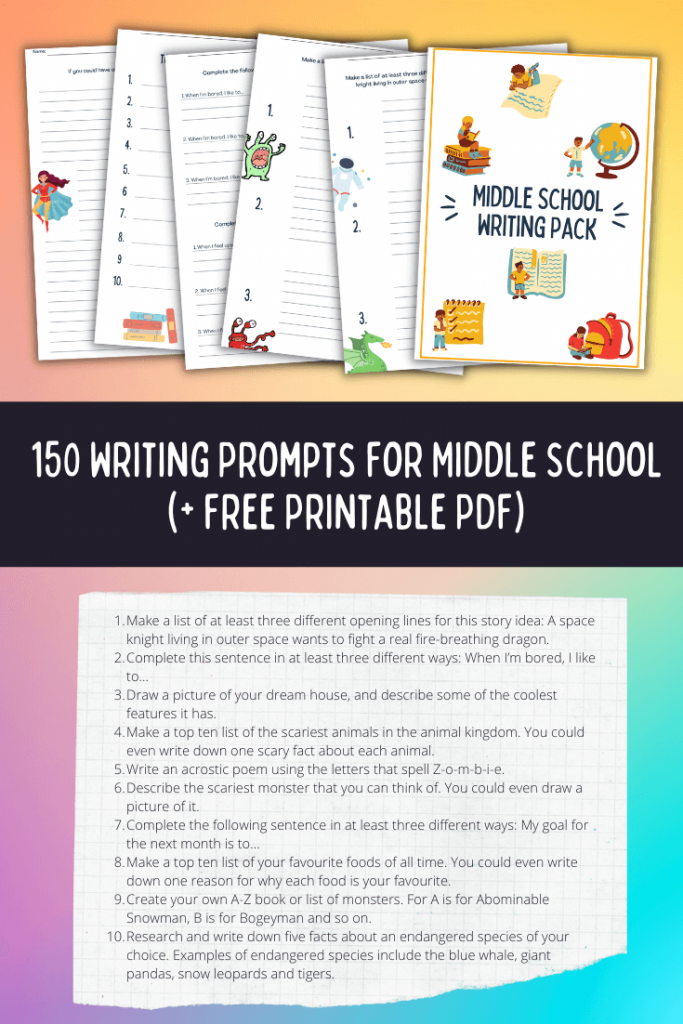
Marty the wizard is the master of Imagine Forest. When he's not reading a ton of books or writing some of his own tales, he loves to be surrounded by the magical creatures that live in Imagine Forest. While living in his tree house he has devoted his time to helping children around the world with their writing skills and creativity.
Related Posts
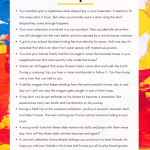
Comments loading...
- Grades 6-12
- School Leaders
50 Fun Earth Day Crafts and Activities 🌎!
101 Exciting 4th Grade Writing Prompts for 2023 (Free Printable!)
Use them for journal writing, essay topics, and more!
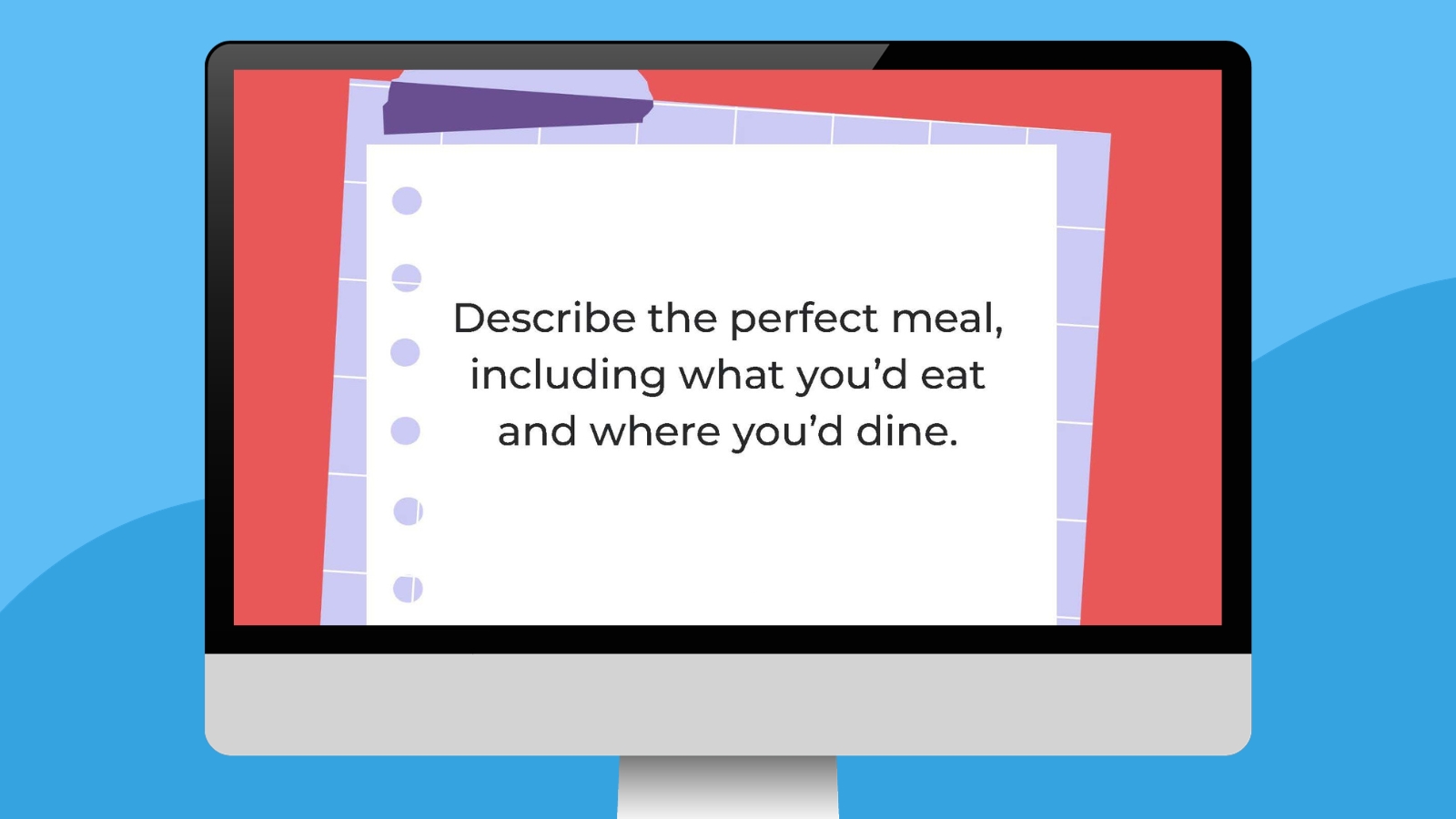
Fourth grade is a time for students to continue to hone their writing chops as they put to use the skills they’ve learned and gain confidence in their abilities. We’ve collected this list of fourth grade writing prompts—including opinion, persuasive, informational, and narrative—to spur your students’ imaginations and get them writing!
You can get 50 of these fourth grade writing prompts in a free PowerPoint slideshow bundle! They make it easy to share these writing ideas with your students. Grab your free PowerPoint bundle by submitting your email here .
- Persuasive and Opinion Writing Prompts
- Descriptive and Expository Writing Prompts
- Narrative and Personal Writing Prompts
- Creative Writing Prompts
- Current Events Writing Prompts
Persuasive and Opinion 4th Grade Writing Prompts
Would you rather be good at sports or good in school? Why?
Would you rather have lots of money or lots of friends? Why?
What is your favorite subject in school? Why?
Are fourth graders ready to stay home alone? Why or why not?
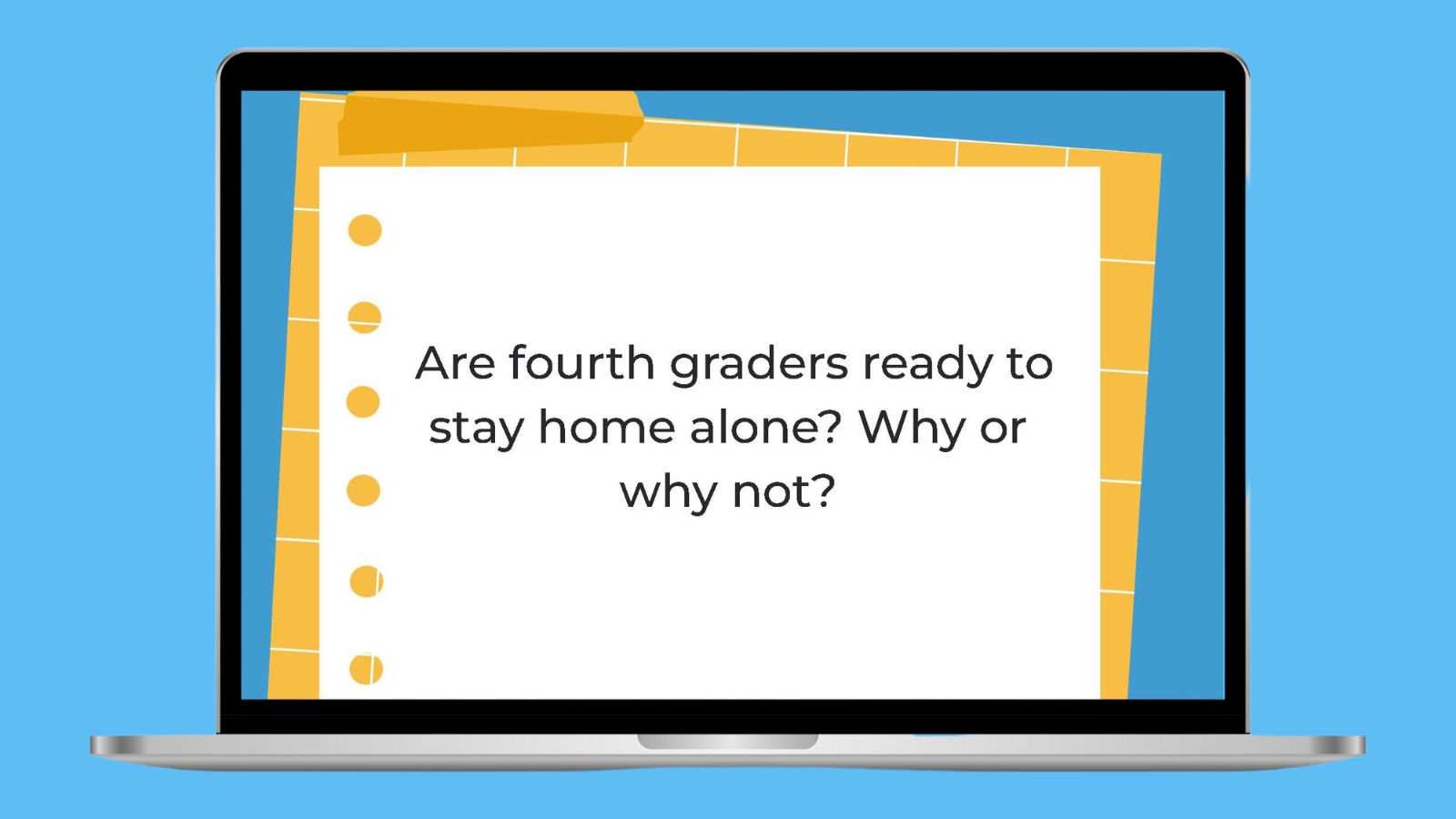
Name two characters from different books that you think might be good friends. Why?
Which is more important for success, skill or luck?
Should kids be paid an allowance to do chores around the house? Why or why not?
Why are classroom rules important?
If you had a time machine, what era of history would you visit?
Why is math important?
Why is science important?
Should fourth graders have cell phones? Why or why not?
If you could open a store, what type of store would it be and why?
Which would you rather read: a scary story that gives you goosebumps or a funny story that cracks you up? Why?
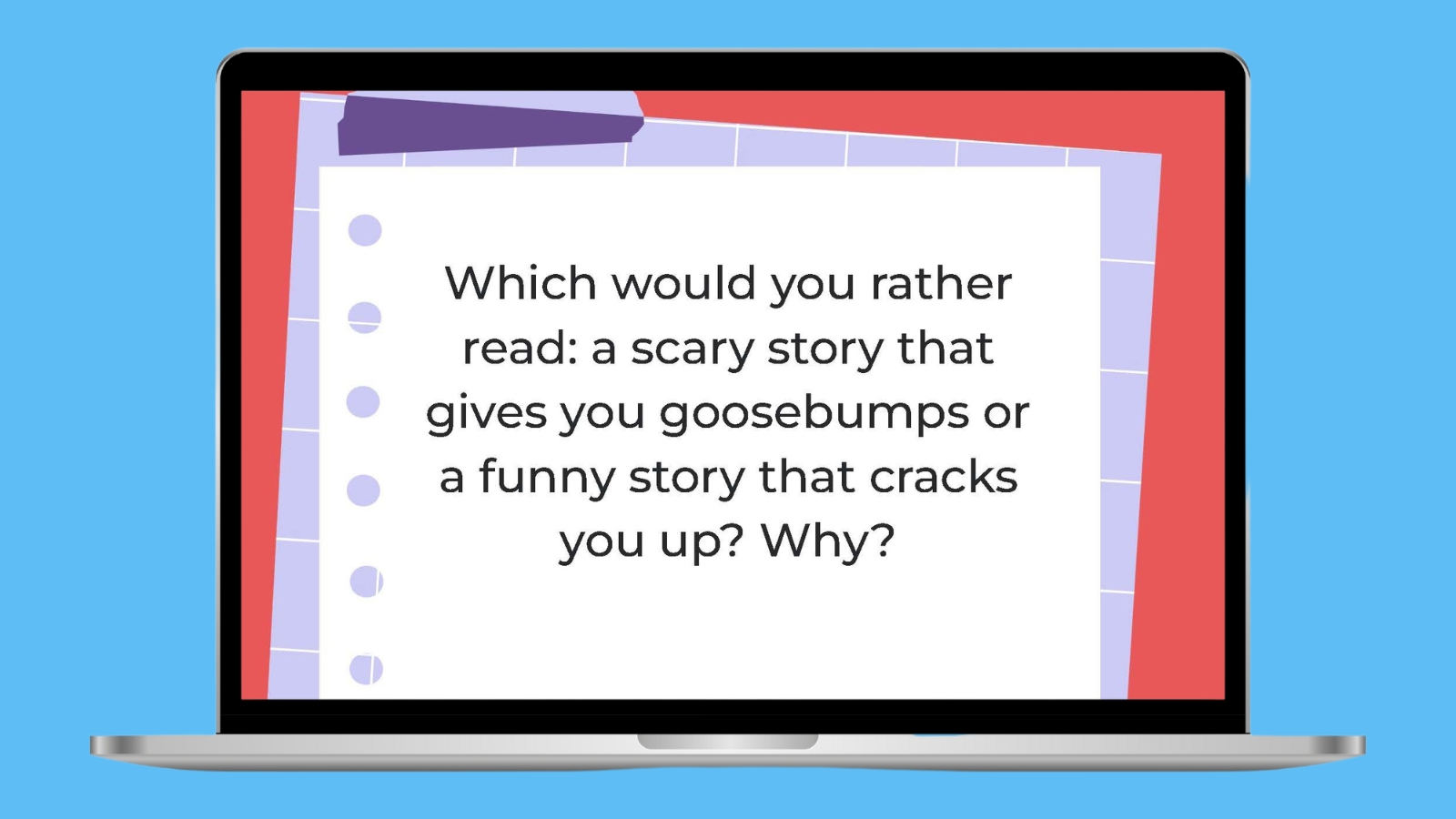
What is the hardest thing about being a fourth grader?
If I were the ruler of the world, the first law I would pass would be … because …
If you found a backpack filled with dollar bills, what would you do?
Is it ever OK to tell secrets? Why or why not?
What animal makes the best pet? Why?
Is it better to spend an hour a day reading or an hour a day exercising? Why?
Descriptive and Expository 4th Grade Writing Prompts
If you had a YouTube channel, what would you talk about?
What’s the best book you’ve read recently? What was it all about?
If you won a million dollars, how would you spend the money?

Describe what you think of as perfect weather.
Describe how to build a birdhouse step by step.
Write five rules for staying organized.
What is the worst book you ever read?
Describe the physical appearance of someone in your family in detail.
Imagine you are in a hot-air balloon above your house. Describe everything you can see.
Describe how to play your favorite board game.
There’s an old saying: “The squeaky wheel gets the grease.” What do you think this saying means?
Describe your perfect day.

One of your little cousins is very nervous about starting kindergarten. What would you tell them to make them feel better?
Imagine you are an adult and describe your dream job.
Explain your morning routine in detail, from waking up to arriving at school.
Describe the perfect meal, including what you’d eat and where you’d dine.
Share what you do on a typical non-school day.
Explain the right way to do one of your household chores, like making your bed or cleaning your room.
Describe your favorite room at home in detail.
How do you prepare for a big test? Describe the ways you study or practice.
Narrative and Personal 4th Grade Writing Prompts
Share one of the stories your family has told you about when you were a baby.
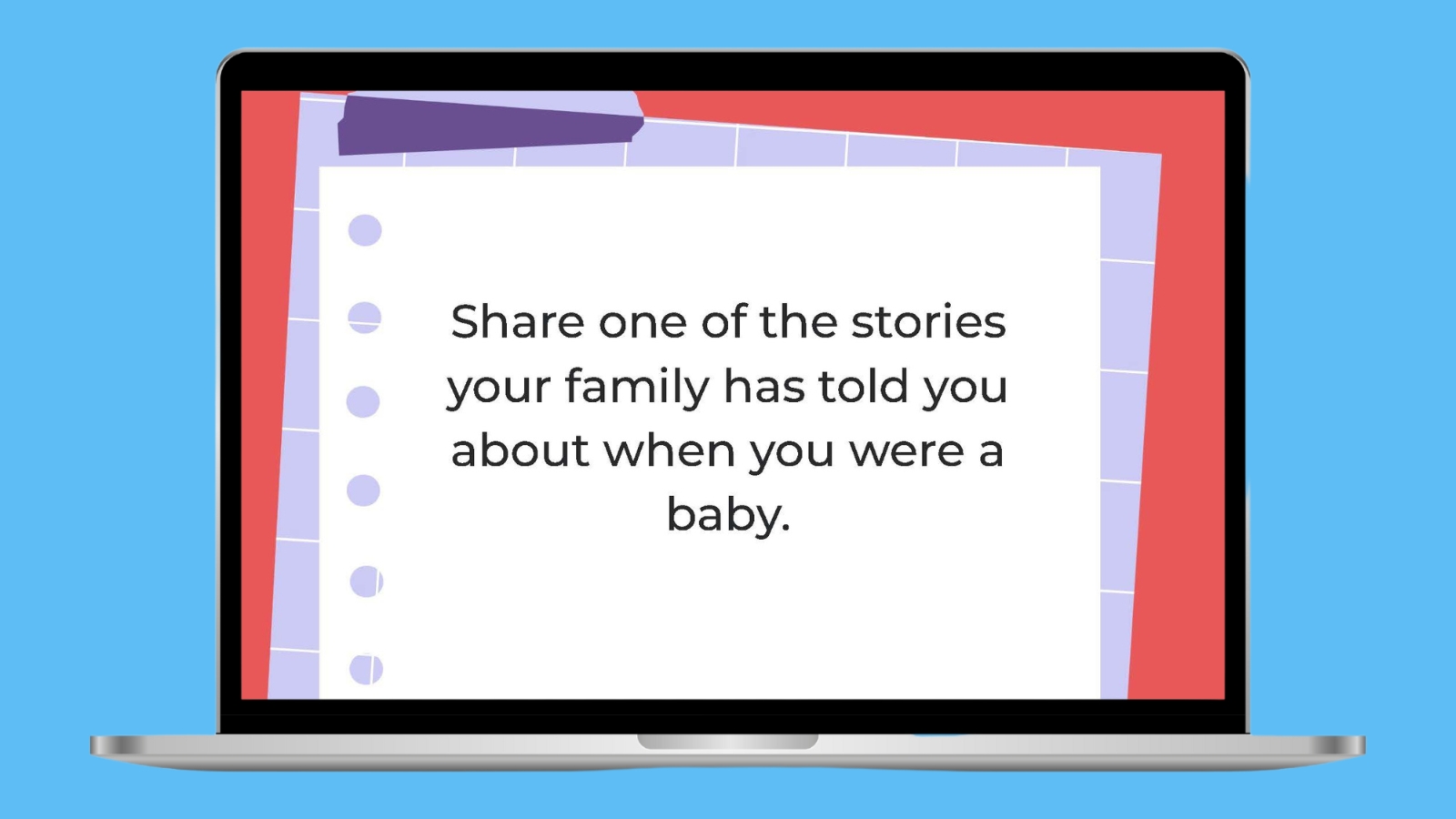
What is the funniest thing that has ever happened to you?
Write about an adult you look up to.
What’s the nicest thing anybody has ever done for you?
If you could change one thing about yourself, what would it be?
Write about a time you felt like quitting but didn’t. How did you keep yourself going?
Do you like nonfiction books or fiction books better? Why?
What makes your family unique?
What would you say is your greatest strength? Greatest weakness?
Are you a patient person? Why or why not?
What is something you’ve never done that you would like to try?
What is the weirdest thing that has ever happened to you?
Write about a time you tried something new and how you felt before, during, and after.
What is your earliest memory?
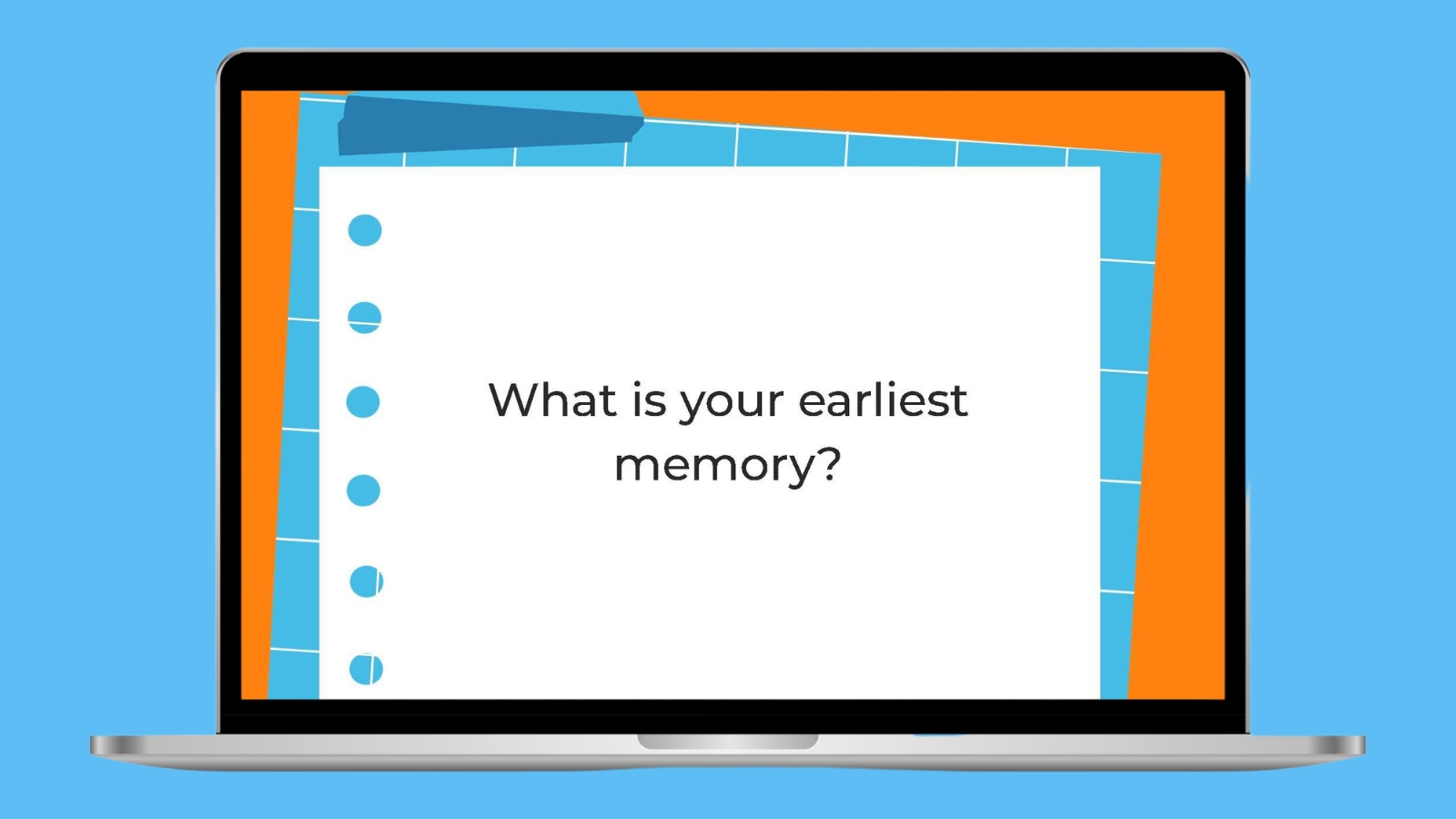
What’s your favorite holiday? What makes it so special?
Write about a time when you felt proud of yourself.
Tell the story of your favorite field trip of all time.
If you could relive any day in your life, what would it be? Would you want it to be the same or different?
What holiday is important to your family? Describe how you celebrate it together.
What’s the best gift you’ve ever gotten? How did it make you feel?
Creative 4th Grade Writing Prompts
If you met an alien, what three questions would you ask them?
Pretend you drank a magic potion that made you as tiny as an ant. Where would you go and what would you do?
Pretend you ate a magic pill that made you as tall as a redwood tree. Where would you go and what would you do?
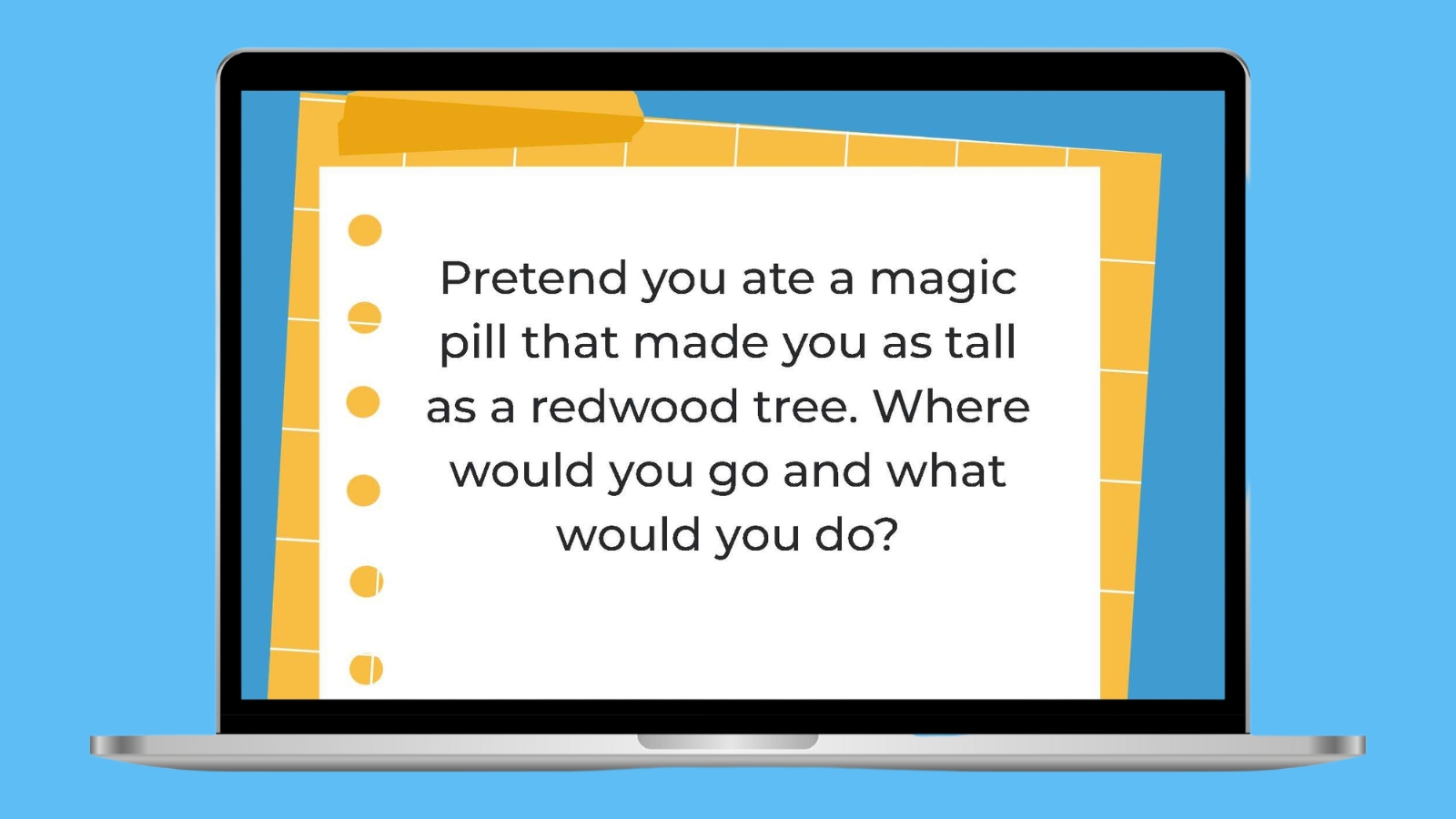
Write a story that includes these five words: keys, spaghetti, uncle, jellyfish, spaceship.
What would the world be like if dinosaurs still existed?
If you could invent something new the world really needs, what would it be? How would it work?
Retell a classic story, making the villain the hero instead.
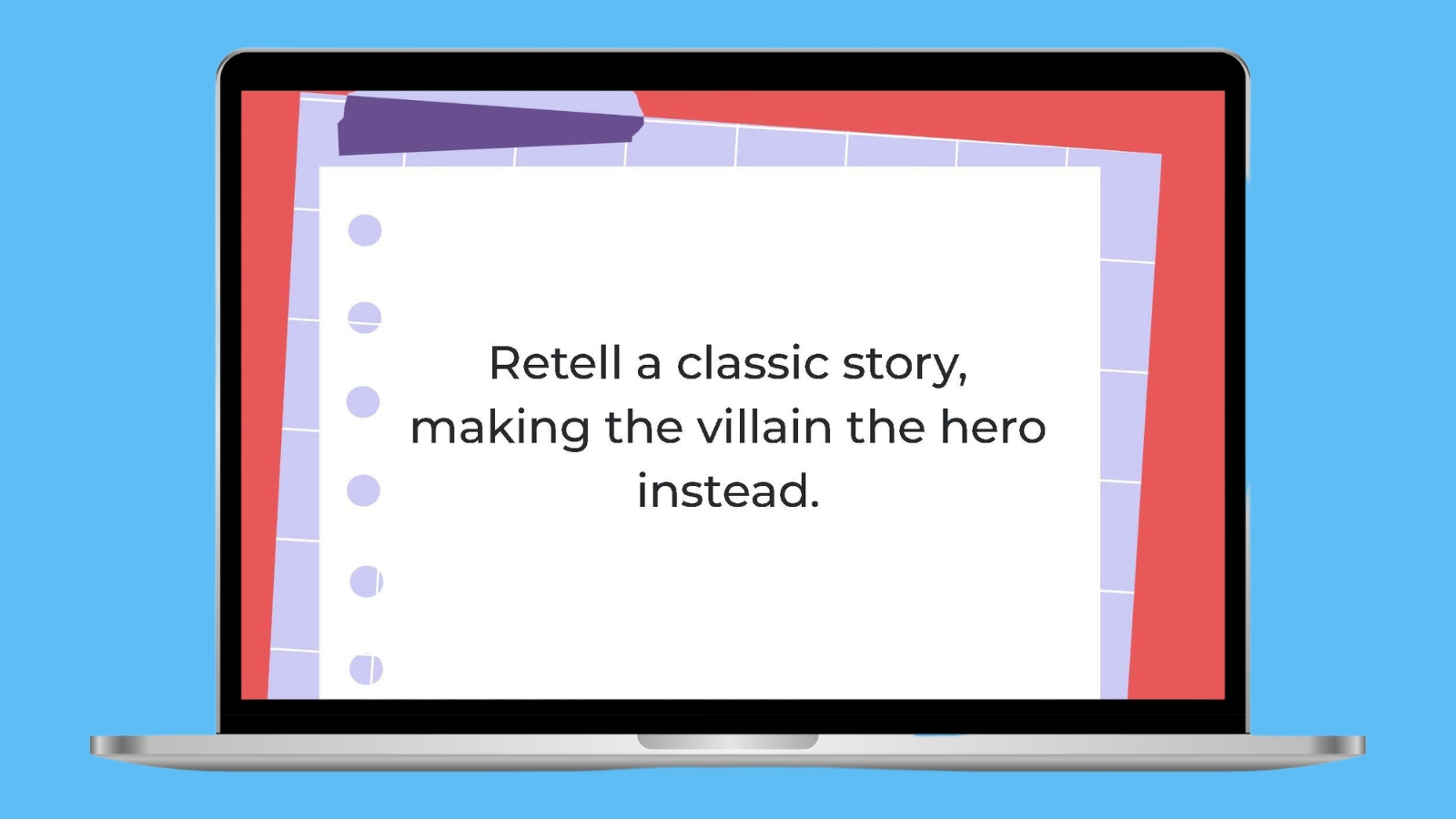
Imagine that one day you woke up and found everyone in the world could no longer talk. What would happen next?
Write a new chapter of your favorite book, with yourself as a new character.
Imagine you woke up one morning with a superpower, like invisibility or the ability to fly. Describe your experiences learning how to use that power.
Use these words to start a story: “When I opened the box that came in the mail, I never expected to find …”
Describe a world where it rains fruit juice and snows M&Ms.
Come up with the most ridiculous excuse possible for why you are unable to turn in your homework today.
Describe a world where all the adults are robots, but kids are still human kids.
Imagine a conversation between yourself and a talking animal.
Describe the kind of creature you’d create if you were a mad scientist. Would it be scary and mean? Nice and friendly?
Invent a new kind of candy. Give it a name, and write a commercial jingle for it.
Write about a day where kids are in charge instead of grown-ups.
Imagine you’re lost in a haunted wood, and tell the story of your escape.
Tell a story that ends with these words: “… and that’s how we all learned to fly.”
Describe a night in the life of the tooth fairy.
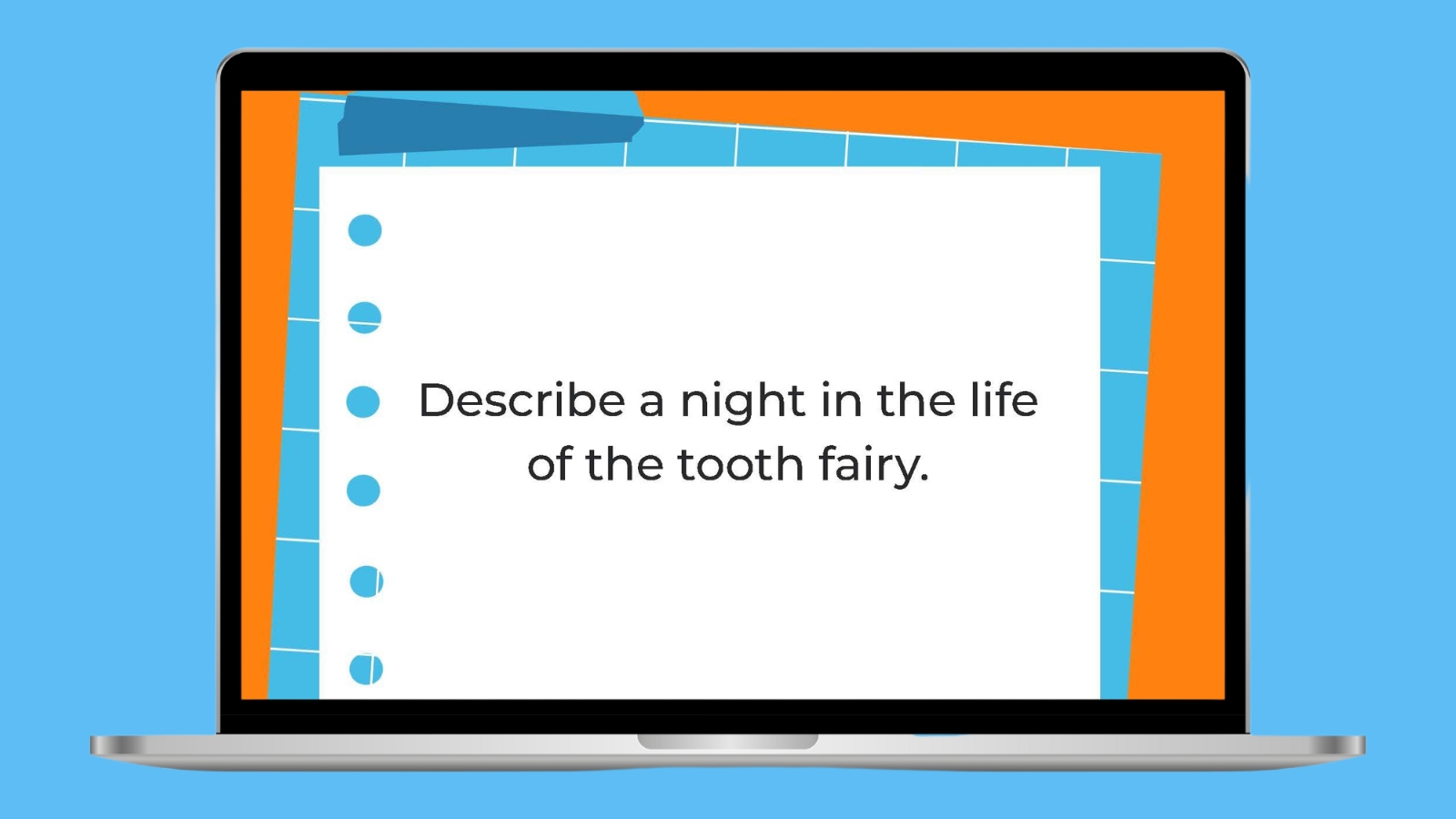
Current Events 4th Grade Writing Prompts
If you made a time capsule for this year, what would you put in it?
Describe something that you saw in the news recently and how it made you feel.
Tell about an event that happened recently at your school or in your town.
What do you think is one of the world’s biggest problems right now, and how would you solve it?
Read a news story about something happening in another country and summarize it.
Write a news article about something important that happened to you this week.
Create a poem about something in the local news right now.
Write a letter to the editor about a current issue, explaining your opinion.
Find a “good news” story, and share why it makes you happy.
What living famous person do you most admire and why?
What do you think kids today can do about climate change and global warming?
Learn about an endangered animal, and describe what we can do to help it.
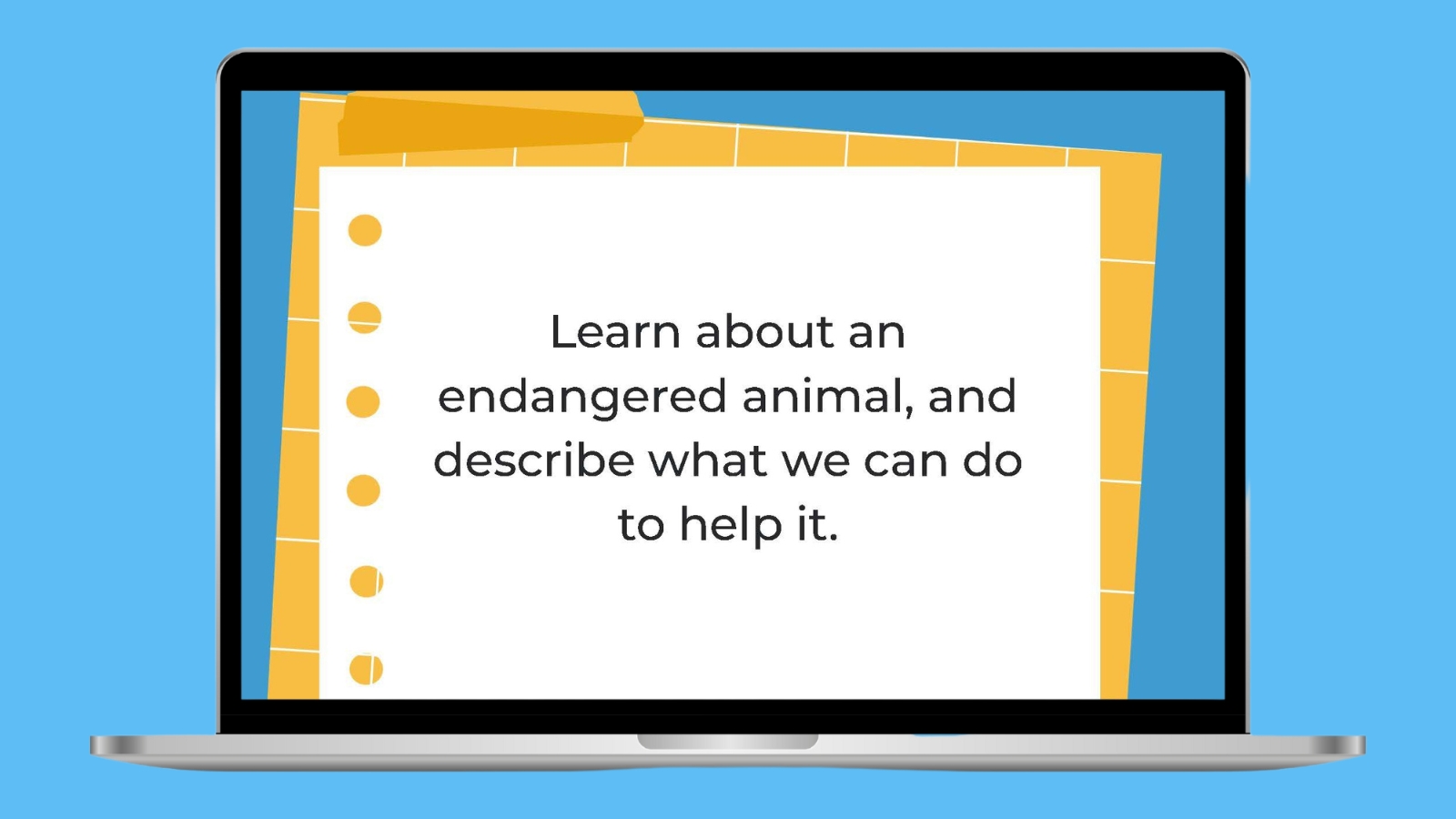
What does the word “racism” mean to you?
What is one thing you would do to make your school or town a better place?
Choose an upcoming sports event, and explain who you think will win.
Describe a current fashion trend or something that’s very popular in your school right now, and how you feel about it.
What can we do to help people with different opinions get along with one another better?
Interview a grown-up you know, and write a news article about them.
What do you think is the best new song right now? The worst? Why?
Describe an event that’s happening in the world right now that you don’t understand. What questions would you ask a grown-up about it?
How do you use writing prompts with your students? Come share your ideas and ask for advice in the We Are Teachers HELPLINE group on Facebook .
Also check out 57 awesome 4th grade books you’ll want to share with students ..
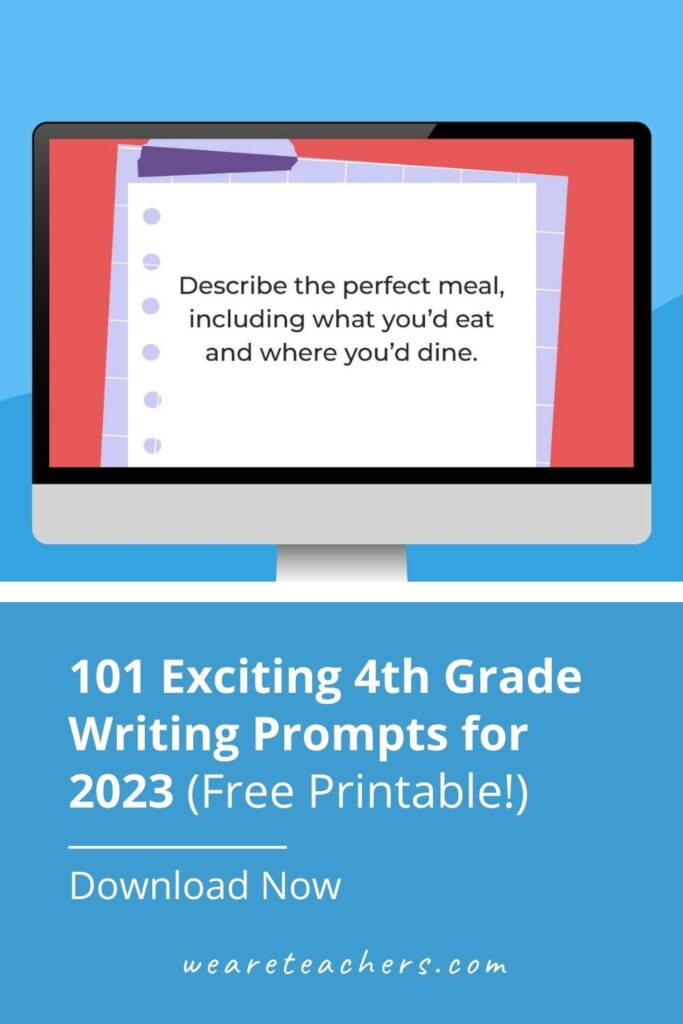
You Might Also Like
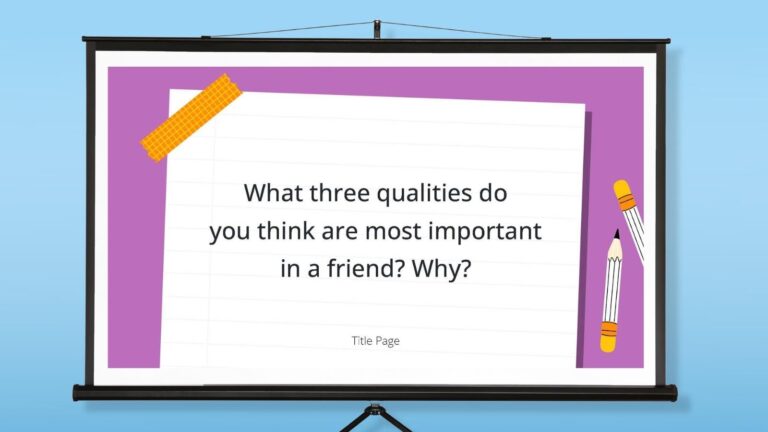
75 Creative Fifth Grade Writing Prompts (Free Slides!)
Get them excited to write every day! Continue Reading
Copyright © 2023. All rights reserved. 5335 Gate Parkway, Jacksonville, FL 32256
- Our Mission
4 Engaging Writing Tasks for High School Students
Short, authentic writing tasks can encourage high school students to compose richer long pieces.

It’s quite likely that many of your students dislike writing. After all, they’re often expected to compose lengthy pieces that typically require lots of brainstorming, researching, planning, outlining, drafting, revising, and editing—and that can be exhausting. My class of high school boys had the same attitude, and their short, underdeveloped, and passionless pieces were most telling. I had to overhaul my approach.
During my quest for an alternative practice, I quickly learned that by building students’ knowledge about the topic on which they are expected to compose, and by initially assigning them shorter and more authentic writing tasks, we can successfully motivate them to write longer, richer, and more compelling multiparagraph pieces. Yes, baby steps—from a creep to a stable walk—can work wonders.
Incorporate Knowledge-Building Activities
Judith Hochman and Natalie Wexler said it best in The Writing Revolution: A Guide to Advancing Thinking Through Writing in All Subjects and Grades : “Writing and content knowledge are intimately related. You can’t write well about something you don’t know well. The more students know about a topic before they begin to write, the better they will be able to write about it.”
Documentaries, podcasts, TED Talks, and other authentic and engaging audiovisuals can facilitate this knowledge building. Field trips, as well as interviews with relevant community-based experts, can also offer students significant fodder for their writing.
Moreover, when students have interesting discoveries to share, they’ll be excited about the writing tasks, and their compositions are likely to be longer, more detailed, more affecting, and more compelling. Because they have a rich knowledge bank, they’re less likely to get stuck and frustrated as they write. Knowledge stimulates ideas.
But information gathering is not all. It’s also important to show students how to use the newly learned content. We don’t want them to plagiarize information or inadvertently silence their own voices by over-quoting others. Their research should enhance what they write, not substitute for their initial thoughts or suppress their creativity.
What can you do then?
Go beyond lessons in citation format. Model, through write-aloud, how to make decisions about the content included in written work, how to paraphrase and summarize from the original source, and how to ensure that the added content actually strengthens what you already have.
Offer Authentically Rooted Writing Assignments
Finally, make sure that the writing assignments are authentic—with realistic, real-world communicative goals and true-to-life audiences (not just the classroom teacher). Here are some suggestions that you can implement in your teaching practice:
Travel blogs: Take students on virtual field trips. Nearpod , Google Earth, and YouTube are excellent for this. Following this activity, have students write a blog post to describe the place they visited. If your students have visited resorts or attraction sites locally, they could write about that experience, recommend activities for prospective visitors, and simultaneously persuade them to visit when it is safe to do so.
Their insights might even persuade others to travel to this site. Students could use pictures to supplement their writing. They could also convert their written piece into a mini-video production for a real or imagined YouTube channel that promotes exotic getaways. Their composition would become the audio narration, and, with some background reggae, R & B, or any other culturally popular music, their piece would be beautifully transformed into a riveting marketing pitch.
Movie reviews: Due to the pandemic, we know that many of our students may be watching far more movies than ever before. Therefore, let’s repurpose this social activity and use what they love or do for pleasure to help them refine a key academic skill. Have students write a review of their most recently watched or favorite film.
Prompt them to provide a summary of the movie, share their impressions of major characters and the plot’s unfolding, and examine the techniques used to create suspense and mounting tension. Later, when they’re writing their own narratives or putting on drama productions, they can adopt and adapt some of these techniques.
Song or music video reviews: Some students enjoy listening to music, so a song or music video review could also motivate them and facilitate interest-based differentiation. State where the review may be published—a local tabloid, a social media page, etc. Have students keep that in mind as they write so that their finished pieces are authentic and fitting for the context and audience intended.
Social media: Based on your content area, you could have students make discipline-specific posts and write related captions. For instance, if you are looking at rocks in geography or soil types in science, have students photograph different types and post related descriptive or explanatory captions. They’ll be learning and teaching concurrently.
Provide Mentor Texts
These activities are exciting, but before you scuttle off to assign them, find or create models of the kinds of writing that you want your students to produce. Discuss the sample by prompting students to keenly attend to the content and the writer’s craft (style and techniques) throughout the piece.
Finally, make arrangements to have your students publish their pieces—through a safe online space or through an in-school magazine or newsletter—for authenticity at its finest.
Writing Prompts for Elementary School Students
Tim Platt/Getty Images
- M.S., Education, Buffalo State College
- B.S., Education, Buffalo State College
Writing is an essential skill and an important part of elementary school studies. However, writing inspiration does not come easily to every student. Like adults, many children experience writer's block , particularly when an assignment is extremely open-ended.
Good writing prompts get students' creative juices flowing , help them write more freely, and ease any anxiety they may feel about the writing process. To integrate writing prompts into your lessons, ask students to choose one writing prompt each day or week. To make the activity more challenging, encourage them to write without stopping for at least five minutes, increasing the number of minutes that they devote to writing over time.
Remind your students that there is no wrong way to respond to the prompts and that they should simply have fun and let their creative minds wander. After all, just as athletes need to warm up their muscles, writers need to warm up their minds.
Elementary School Writing Prompts
- My biggest goal in life is...
- The best book I ever read was...
- The happiest moment in my life was when...
- When I grow up, I want to...
- The most interesting place I have ever been to was...
- Name three things you don't like about school and why.
- The strangest dream I ever had was...
- The person I admire most is...
- When I turn 16, I will...
- Who is the funniest member of your family and why?
- I get scared when...
- Five things I would do if I had more money are...
- What is your favorite sport and why?
- What would you do if you could change the world?
- Dear teacher, I would like to know...
- Dear President Washington, what was it like to be the first president?
- My happiest day was...
- My saddest day was...
- If I had three wishes, I would wish for...
- Describe your best friend, how you met, and why you are friends.
- Describe your favorite animal and why.
- Three things I like to do with my pet elephant are...
- The time a bat was in my house...
- When I become an adult, the first thing I want to do is...
- My best vacation was when I went to...
- The top three reasons that people argue are...
- Describe five reasons that going to school is important.
- What is your favorite television show and why?
- The time I found a dinosaur in my backyard...
- Describe the best present you ever received.
- Describe your most unusual talent.
- My most embarrassing moment was when...
- Describe your favorite food and why.
- Describe your least favorite food and why.
- The top three qualities of a best friend are...
- Write about what you would cook for an enemy.
- Use these words in a story: scared, angry, Sunday, bugs.
- What's your idea of a perfect vacation?
- Write about why someone might be afraid of snakes.
- List five rules that you have broken and why you broke them.
- What is your favorite video game and why?
- I wish someone had told me that...
- Describe the hottest day you can remember.
- Write about the best decision you've ever made.
- I opened the door, saw a clown, and then...
- The last time the power went out, I...
- Write about five things you can do if the power goes out.
- If I were president, I would...
- Create a poem using the words: l o ve, happy, smart, sunny.
- The time my teacher forgot to wear shoes...
- For prompts that ask students to write about a person, encourage them to write two responses—one response about a friend or family member, and another about someone they don't know personally. This exercise encourages children to think outside the box.
- Remind students that their responses can be fantastical. When the confines of realism are eliminated, students are free to think more creatively, which often inspires greater engagement in the project.
If you're looking for more writing ideas, try our lists of journal prompts or ideas for writing about important people in history like Martin Luther King Jr .
- Writing Prompts for 5th Grade
- Writing Prompts for 7th Grade
- Second Grade Writing Prompts
- 24 Journal Prompts for Creative Writing in the Elementary Classroom
- November Writing and Journal Prompts
- 40 "Back From Christmas Break" Writing Prompts
- Christmas Journal Writing Prompts
- First Grade Writing Prompts
- 4th Grade Writing Prompts
- September Writing Prompts
- Engaging Writing Prompts for 3rd Graders
- December Writing Prompts
- October Writing Prompts
- February Writing Prompts
- Journal Writing Prompts for Easter
- Fun March Writing Prompts for Journaling
Purdue Online Writing Lab Purdue OWL® College of Liberal Arts
Common Writing Assignments

Welcome to the Purdue OWL
This page is brought to you by the OWL at Purdue University. When printing this page, you must include the entire legal notice.
Copyright ©1995-2018 by The Writing Lab & The OWL at Purdue and Purdue University. All rights reserved. This material may not be published, reproduced, broadcast, rewritten, or redistributed without permission. Use of this site constitutes acceptance of our terms and conditions of fair use.
These OWL resources will help you understand and complete specific types of writing assignments, such as annotated bibliographies, book reports, and research papers. This section also includes resources on writing academic proposals for conference presentations, journal articles, and books.
Understanding Writing Assignments
This resource describes some steps you can take to better understand the requirements of your writing assignments. This resource works for either in-class, teacher-led discussion or for personal use.
Argument Papers
This resource outlines the generally accepted structure for introductions, body paragraphs, and conclusions in an academic argument paper. Keep in mind that this resource contains guidelines and not strict rules about organization. Your structure needs to be flexible enough to meet the requirements of your purpose and audience.
Research Papers
This handout provides detailed information about how to write research papers including discussing research papers as a genre, choosing topics, and finding sources.
Exploratory Papers
This resource will help you with exploratory/inquiry essay assignments.
Annotated Bibliographies
This handout provides information about annotated bibliographies in MLA, APA, and CMS.
Book Report
This resource discusses book reports and how to write them.
Definitions
This handout provides suggestions and examples for writing definitions.
Essays for Exams
While most OWL resources recommend a longer writing process (start early, revise often, conduct thorough research, etc.), sometimes you just have to write quickly in test situations. However, these exam essays can be no less important pieces of writing than research papers because they can influence final grades for courses, and/or they can mean the difference between getting into an academic program (GED, SAT, GRE). To that end, this resource will help you prepare and write essays for exams.
Book Review
This resource discusses book reviews and how to write them.
Academic Proposals
This resource will help undergraduate, graduate, and professional scholars write proposals for academic conferences, articles, and books.
In this section
Subsections.

10 fun writing activities for the reluctant writer
10 FUN WRITING ACTIVITIES FOR THE RELUCTANT WRITER
No doubt about it – writing isn’t easy. It is no wonder that many of our students could be described as ‘reluctant writers’ at best. It has been estimated by the National Association of Educational Progress that only about 27% of 8th and 12th Grade students can write proficiently.
As educators, we know that regular practice would go a long way to helping our students correct this underachievement, and sometimes, writing prompts just aren’t enough to light the fire.
But how do we get students, who have long since been turned off writing, to put pen to paper and log in the requisite time to develop their writing chops?
The answer is to make writing fun! In this article, we will look at some creative writing activities where we can inject a little enjoyment into the writing game.

COMPLETE DIGITAL AND PRINT FUN WRITING UNIT
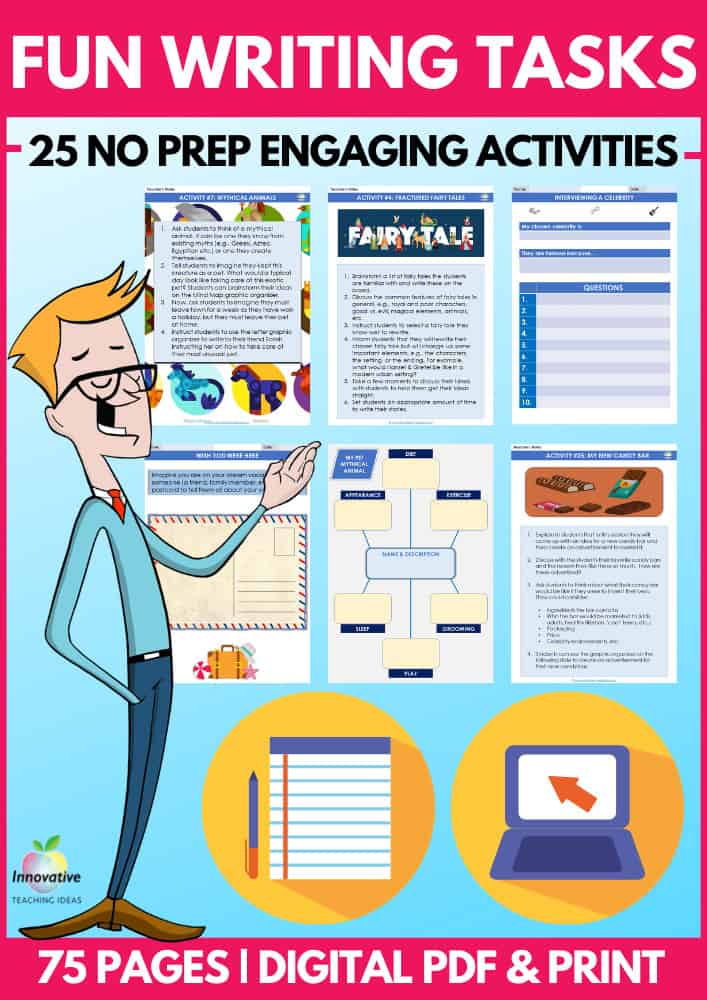
25 FUN and ENGAGING writing tasks your students can complete INDEPENDENTLY with NO PREP REQUIRED that they will love.
Fully EDITABLE and works as with all DIGITAL PLATFORMS such as Google Classroom, or you can PRINT them for traditional writing tasks.
1. Poetry Scavenger Hunt
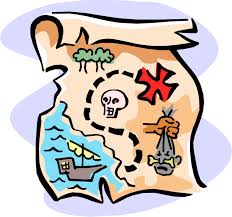
The Purpose: This activity encourages students to see the poetry in the everyday language around them while helpfully reinforcing their understanding of some of the conventions of the genre.
The Process: Encourage students to ‘scavenge’ their school, home, and outside the community for snippets of language they can compile into a piece of poetry or a poetic collage. They may copy down or photograph words, phrases, and sentences from signs, magazines, leaflets or even snippets of conversations they overhear while out and about.
Examples of language they collect may range from the Keep Out sign on private property to the destination on the front of a local bus.
Once students have gathered their language together, they can work to build a poem out of the scraps, usually choosing a central theme to give the piece cohesion. They can even include corresponding artwork to enhance the visual appeal of their work, too, if they wish.
The Prize: If poetry serves one purpose, it is to encourage us to look at the world anew with the fresh eyes of a young child. This activity challenges our students to read new meanings into familiar things and put their own spin on the language they encounter in the world around them, reinforcing the student’s grasp on poetic conventions.
2. Story Chains
The Purpose: Writing is often thought of as a solitary pursuit. For this reason alone, it can be seen as a particularly unattractive activity by many of our more gregarious students. This fun activity exercises students’ understanding of writing structures and engages them in fun, creative collaboration.
The Process: Each student starts with a blank paper and pen. The teacher writes a story prompt on the whiteboard. You’ll find some excellent narrative writing prompts here . For example, each student spends two minutes using the writing prompt to kick-start their writing.
When they have completed this part of the task, they will then pass their piece of paper to the student next to them. Students then continue the story from where the previous student left off for a given number of words, paragraphs, or length of time.
If organized correctly, you can ensure students receive their own initial story back at the end for the writing of the story’s conclusion .
The Prize: This fun writing activity can be used effectively to reinforce student understanding of narrative writing structures, but it can also be fun to try with other writing genres.
Working collaboratively motivates students to engage with the task, as no one wants to be the ‘weak link’ in the finished piece. But, more than that, this activity encourages students to see writing as a communicative and creative task where there needn’t be a ‘right’ answer. This encourages students to be more willing to take creative risks in their work.
3. Acrostic Associations
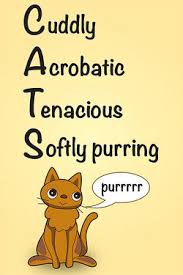
The Purpose: This is another great way to get students to try writing poetry – a genre that many students find the most daunting.
The Process: Acrostics are simple poems whereby each letter of a word or phrase begins a new line in the poem. Younger students can start off with something very simple, like their own name or their favorite pet and write this vertically down the page.
Older students can take a word or phrase related to a topic they have been working on or have a particular interest in and write it down on the page before beginning to write.
The Prize: This activity has much in common with the old psychiatrist’s word association technique. Students should be encouraged to riff on ideas and themes generated by the focus word or phrase. They needn’t worry about rhyme and meter and such here, but the preset letter for each line will give them some structure to their meanderings and require them to impose some discipline on their wordsmithery, albeit in a fun and loose manner.
4. The What If Challenge

The Purpose: This challenge helps encourage students to see the link between posing interesting hypothetical questions and creating an entertaining piece of writing.
The Process: To begin this exercise, have the students come up with a single What If question, which they can then write down on a piece of paper. The more off-the-wall, the better!
For example, ‘What if everyone in the world knew what you were thinking?’ or ‘What if your pet dog could talk?’ Students fold up their questions and drop them into a hat. Each student picks one out of the hat before writing on that question for a suitable set amount of time.
Example What If Questions
- “What if you woke up one day and found out that you had the power to time travel?”
- “What if you were the last person on Earth? How would you spend your time?”
- “What if you were granted three wishes, but each one came with a terrible consequence?”
- “What if you discovered a secret portal to another world? Where would you go, and what would you do?”
- “What if you woke up one day with the ability to communicate with animals? How would your life change?”
The Prize: Students are most likely to face the terror of the dreaded Writer’s Block when they are faced with open-ended creative writing tasks.
This activity encourages the students to see the usefulness of posing hypothetical What If questions, even random off-the-wall ones, for kick-starting their writing motors.
Though students begin by answering the questions set for them by others, please encourage them to see how they can set these questions for themselves the next time they suffer from a stalled writing engine.
5. The Most Disgusting Sandwich in the World

The Purpose: Up until now, we have looked at activities encouraging our students to have fun with genres such as fiction and poetry. These genres being imaginative in nature, more easily lend themselves to being enjoyable than some of the nonfiction genres.
But what about descriptive writing activities? In this activity, we endeavor to bring that same level of enjoyment to instruction writing while also cleverly reinforcing the criteria of this genre.
The Process: Undoubtedly, when teaching instruction writing, you will at some point cover the specific criteria of the genre with your students.
These will include things like the use of a title, numbered or bulleted points, time connectives, imperatives, diagrams with captions etc. You will then want the students to produce their own piece of instruction writing or procedural text to display their understanding of how the genre works.
But, why not try a fun topic such as How to Make the Most Disgusting Sandwich in the World rather than more obvious (and drier!) topics such as How to Tie Your Shoelaces or How to Make a Paper Airplane when choosing a topic for your students to practice their instruction writing chops?
Example of a Most disgusting Sandwich Text
The Prize: As mentioned, with nonfiction genres, in particular, we tend to suggest more banal topics for our students to work on while internalizing the genre’s criteria. Enjoyment and acquiring practical writing skills need not be mutually exclusive.
Our students can just as quickly, if not more easily, absorb and internalize the necessary writing conventions while engaged in writing about whimsical and even nonsensical topics.
if your sandwich is entering the realm of horror, be sure to check our complete guide to writing a scary story here as well.
Daily Quick Writes For All Text Types

Our FUN DAILY QUICK WRITE TASKS will teach your students the fundamentals of CREATIVE WRITING across all text types. Packed with 52 ENGAGING ACTIVITIES
6. Diary Entry of a Future Self

The Purpose: This activity allows students to practice personal writing within the conventions of diary/journal writing. It also challenges them to consider what their world will be like in the future, perhaps stepping a foot into the realm of science fiction.
The Process: Straightforwardly, after working through some examples of diary or journal writing, and reviewing the various criteria of the genre, challenge the students to write an entry at a given milestone in the future.
This may be when they leave school, begin work, go to university, get married, have kids, retire etc. You may even wish to get the students to write an entry for a series of future milestones as part of a more extended project.
Example of Message to Future Me Text
The Prize: Students will get a chance here to exercise their understanding of this type of writing , but more than that, they will also get an opportunity to exercise their imaginative muscles too. They will get to consider what shape their future world will take in this engaging thought experiment that will allow them to improve their writing too.
7. Comic Strip Script
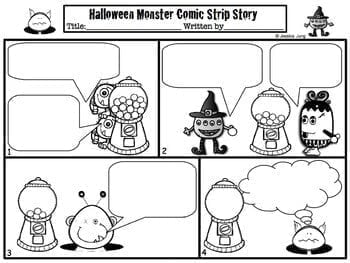
The Purpose: Give your students the chance to improve their dialogue writing skills and to work on their understanding of character development in this fun activity which combines writing with the use of a series of visual elements.
The Process: There are two ways to do this activity. The first requires you to source, or create, a comic strip minus the dialogue the characters are speaking. This may be as straightforward as using whiteout to erase the words in speech bubbles and making copies for your students to complete.
Alternatively, provide the students with photographs/pictures and strips of cards for them to form their own action sequences . When students have their ‘mute’ strips, they can begin to write the dialogue/script to link the panels together.
The Prize: When it comes to writing, comic strips are probably one of the easier sells to reluctant students! This activity also allows students to write for speech. This will stand to them later when they come to produce sections of dialogue in their narrative writing or when producing play or film scripts.
They will also develop their visual literacy skills as they scan the pictures for clues of tone and context before they begin their writing.
Keep It Fun
Just as we should encourage our students to read for fun and wider educational benefits, we should also work to instil similar attitudes towards writing. To do this means we must work to avoid always framing writing in the context of a chore, that bitter pill that must be swallowed for the good of our health.
There is no getting away from the fact that writing can, at times, be laborious. It is time-consuming and, for most of us, difficult at the best of times. There is a certain, inescapable amount of work involved in becoming a competent writer.
That said, as we have seen in the activities above, with a bit of creative thought, we can inject fun into even the most practical of writing activities . All that is required is a dash of imagination and a sprinkling of effort.
8. Character Interviews

The Purpose: Character interviews as writing activities are excellent for students because they encourage creative thinking, character development, and empathy. The purpose of this activity is to help students delve deeper into the minds of the characters they are creating in their stories or reading about in literature. By conducting interviews with these characters, students gain a better understanding of their personalities, motivations, and perspectives.
The Process of character interviews involves students imagining themselves as interviewers and their characters as interviewees. They can either write out the questions and answers in a script-like format or write a narrative where the character responds to the questions in their own voice.
The Prize: Through character interviews, students learn several valuable skills:
- Character Development: By exploring various aspects of their characters’ lives, backgrounds, and experiences, students can develop more well-rounded and authentic characters in their stories. This helps make their fictional creations more relatable and engaging to readers.
- Empathy and Perspective: Conducting interviews requires students to put themselves in their characters’ shoes, considering their thoughts, emotions, and struggles. This cultivates empathy and a deeper understanding of human behavior, which can be applied to real-life situations as well.
- Voice and Dialogue: In crafting the character’s responses, students practice writing authentic dialogue and giving their characters unique voices. This skill is valuable for creating dynamic and believable interactions between characters in their stories.
- Creative Expression: Character interviews provide a creative outlet for students to let their imaginations run wild. They can explore scenarios that may not appear in the main story and discover new aspects of their characters they might not have considered before.
- Critical Thinking: Formulating questions for the interview requires students to think critically about their characters’ personalities and backgrounds. This exercise enhances their analytical skills and storytelling abilities.
Overall, character interviews are a dynamic and enjoyable way for students to delve deeper into the worlds they create or the literature they read. It nurtures creativity, empathy, and writing skills, empowering students to become more proficient and imaginative writers.
9. The Travel Journal

The Purpose: Travel journal writing tasks are excellent for students as they offer a unique and immersive way to foster creativity, cultural awareness, and descriptive writing skills. The purpose of this activity is to allow students to embark on a fictional or real travel adventure, exploring new places, cultures, and experiences through the eyes of a traveller.
The process of a travel journal writing task involves students assuming the role of a traveler and writing about their journey in a journal format. They can describe the sights, sounds, tastes, and emotions they encounter during their travels. This activity encourages students to use vivid language, sensory details, and expressive writing to bring their travel experiences to life.
The Prize: Through travel journal writing tasks, students will learn several valuable skills:
- Descriptive Writing: By describing their surroundings and experiences in detail, students enhance their descriptive writing skills, creating engaging and vivid narratives.
- Cultural Awareness: Travel journals encourage students to explore different cultures, customs, and traditions. This helps broaden their understanding and appreciation of diversity.
- Empathy and Perspective: Through writing from the perspective of a traveler, students develop empathy and gain insight into the lives of people from different backgrounds.
- Research Skills: For fictional travel journals, students might research specific locations or historical periods to make their narratives more authentic and accurate.
- Reflection and Self-Expression: Travel journals offer a space for students to reflect on their own emotions, thoughts, and personal growth as they encounter new experiences.
- Creativity and Imagination: For fictional travel adventures, students get to unleash their creativity and imagination, envisioning fantastical places and scenarios.
- Language and Vocabulary: Travel journal writing tasks provide opportunities for students to expand their vocabulary and experiment with expressive language.
Overall, travel journal writing tasks inspire students to become more observant, empathetic, and skilled writers. They transport them to new worlds and foster a sense of wonder and curiosity about the world around them. Whether writing about real or imaginary journeys, students develop a deeper connection to the places they encounter, making this activity both educational and enjoyable.
10. The Fairy Tale Remix

The Purpose: A fairy tale remix writing activity is a fantastic creative exercise for students as it allows them to put a unique spin on classic fairy tales, fostering imagination, critical thinking, and storytelling skills. This activity encourages students to think outside the box, reinterpret well-known tales, and explore their creative potential by transforming traditional narratives into something entirely new and exciting.
The process of a fairy tale remix writing activity involves students selecting a familiar fairy tale and altering key elements such as characters, settings, plot twists, or outcomes. They can modernize the story, change the genre, or even mix different fairy tales together to create a wholly original piece.
The Prize: Through this activity, students will learn several valuable skills:
- Creative Thinking: Students exercise their creativity by brainstorming unique concepts and ideas to remix the fairy tales, encouraging them to think imaginatively.
- Critical Analysis: Analyzing the original fairy tale to identify essential elements to keep and areas to remix helps students develop critical thinking skills and understand storytelling structures.
- Writing Techniques: Crafting a remix requires students to use descriptive language, engaging dialogue, and well-developed characters, helping them hone their writing techniques.
- Perspective and Empathy: Remixing fairy tales allows students to explore different character perspectives, promoting empathy and understanding of diverse points of view.
- Genre Exploration: Remixing fairy tales can introduce students to various genres like science fiction, fantasy, or mystery, expanding their literary horizons.
- Originality: Creating their own narrative twists and unexpected plots encourages students to take ownership of their writing and develop a unique voice.
- Storytelling: Students learn the art of compelling storytelling as they weave together familiar elements with innovative ideas, captivating their readers.
By remixing fairy tales, students embark on a creative journey that empowers them to reimagine well-loved stories while honing their writing skills and imaginative prowess. It’s an engaging and enjoyable way for students to connect with literature, explore new possibilities, and showcase their storytelling talents.
MORE FUN WRITING ACTIVITIES FOR YOU
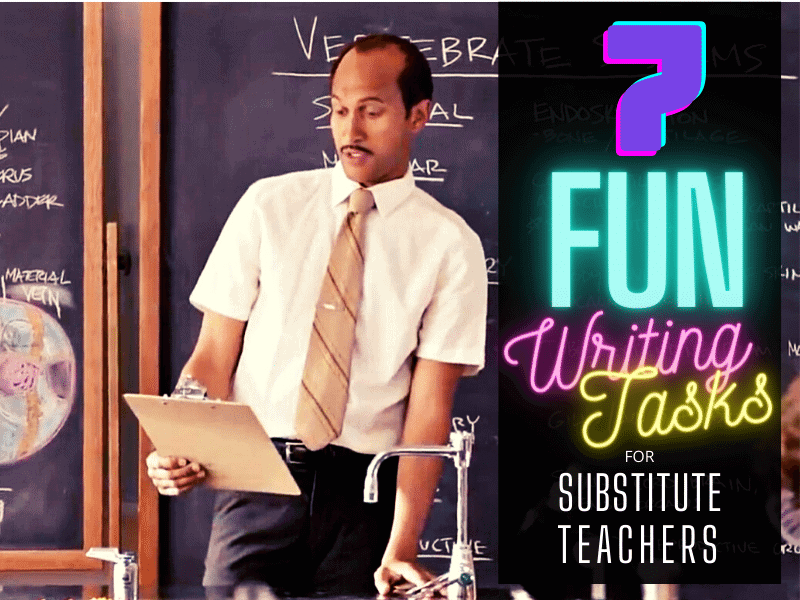
7 Fun Writing Sub Plans for Substitute Teachers

25 Fun Christmas Writing Tasks for Students

5 Fun Seasonal Writing Activities Students and Teachers Love

10 Fun Classroom Writing Games to Improve Literacy Skills
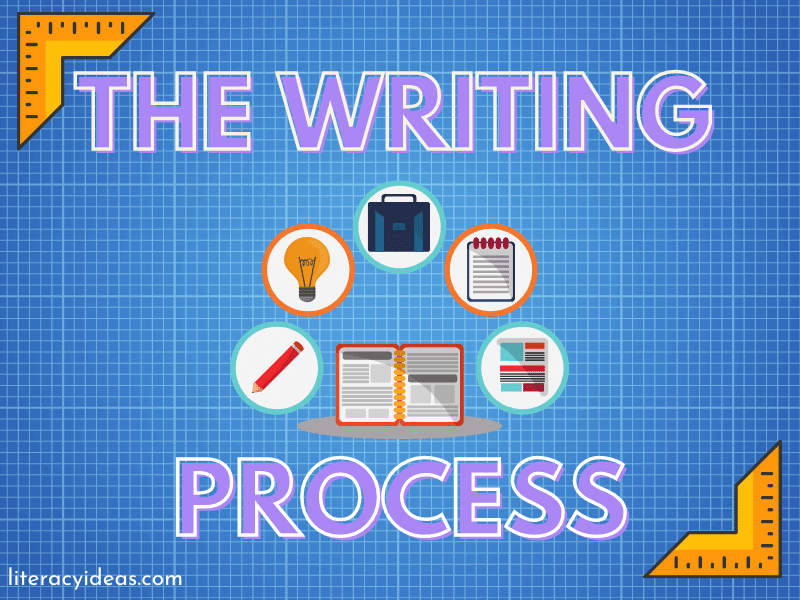
The Writing Process
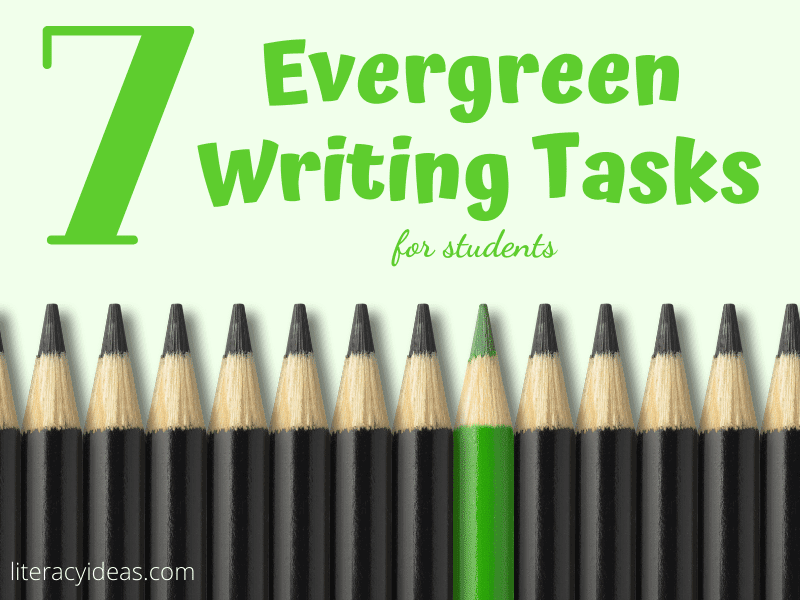
7 Evergreen Writing Activities for Elementary Students
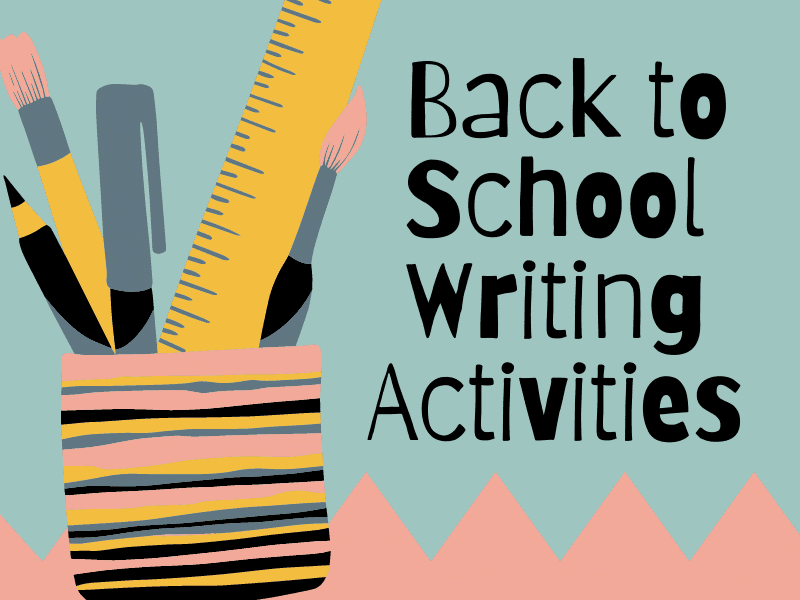
17 Fun First Day Of School Writing Activities
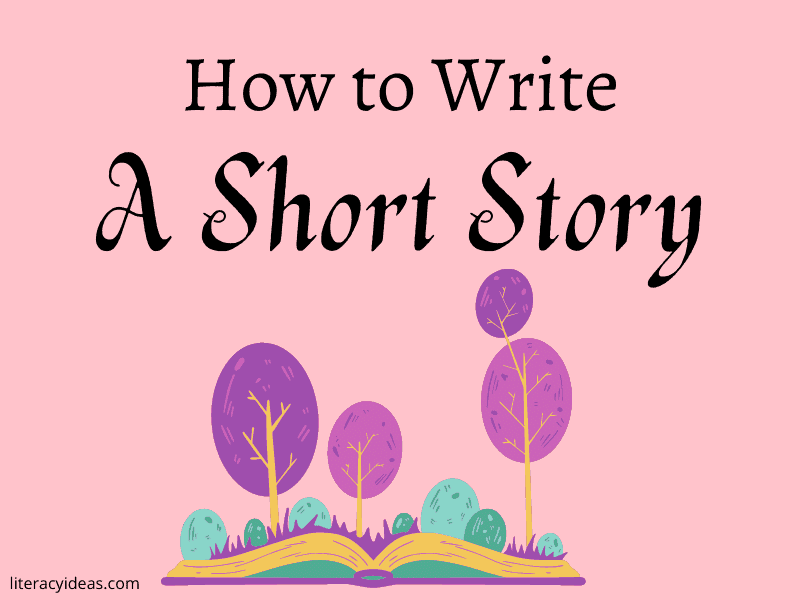
Short Story Writing for Students and Teachers
Want to create or adapt books like this? Learn more about how Pressbooks supports open publishing practices.
II. Getting Started
2.2 Understanding the Writing Assignment: Quick Reference
Robin Jeffrey; Emilie Zickel; Kathy Anders; and Terri Pantuso
Before you begin working on an essay or a writing assignment, don’t forget to spend some quality time analyzing the assignment sheet. By closely reading and breaking down the assignment sheet, you are setting yourself up for an easier time of planning and composing the assignment. You might find it helpful to use the following steps:
- First, determine the genre of the assignment;
- Second, identify the core assignment questions that you need to answer;
- Third, note what types of secondary sources are required as well as how many;
- Fourth, locate the evaluation and grading criteria; carefully read the assignment sheet and search for the required page length, due dates, and other submission-based information;
- Finally, identify the disciplinary conventions with which you are expected to write.
Writing Genre
Loosely speaking, genre refers to a category of work that generally shares similar characteristics. When determining the genre in which you are being asked to write, if it is not explicitly stated ask yourself what, in the broadest sense, are you being asked to do?
How to Answer the Assignment Question(s)
Sometimes, a list of prompts or questions may appear with an assignment given to you by your instructor. It is likely that your instructor will not expect you to answer all of the questions listed. They are simply offering you some ideas so that you can think of your own questions to ask. When this occurs, it can be useful to:
- Circle all assignment questions that you see on the assignment sheet;
- Put a star next to the question that is either the most important OR that you will pursue in creating the assignment;
- Underline the topic about which you feel most passionate. If you are interested in the topic, you will produce a better paper.
Recognizing Implied Questions
A prompt may not include a clear ‘how’ or ‘why’ question, though one is always implied by the language of the prompt. For example, “Discuss the effects of the No Child Left Behind Act on special education programs” is asking you to write how the act has affected special education programs, while “Consider the recent rise of autism diagnoses” is asking you to write why the diagnoses of autism are on the rise. If it is not relatively clear what is implied in the question or prompt, check with your instructor or a writing center tutor.
Identifying Writing Requirements
Some instructors offer indications of what certain parts of the essay/composition should contain. As you read the assignment sheet, look for an indication of elements to be included. Does the assignment sheet offer suggestions or requirements for the introductory paragraph? For the thesis statement? For the structure or content of the body paragraphs or conclusion paragraphs? If not, check with your instructor or visit your university writing center for suggestions and guidance.
Identifying Source Information Requirements
When you receive an assignment, note what types of information you will need in order to respond to the questions in the prompt. Your instructor may indicate that you need to use a certain number of secondary sources in your assignment and may even tell you what types of sources, e.g. newspaper stories, magazine articles, interviews, or scholarly journal articles. It may also be the case that apart from the requirements for the writing assignment, you need to find background information on the topic so that you can begin to formulate your own ideas or your claim. For example, say you are in a nutrition class and you receive the following prompt:
“Evaluate the benefits and drawbacks of a ketogenic diet for a population with a health issue of your choosing, i.e., epilepsy, liver disease, kidney disease, obesity, etc. Use at least four scholarly sources in your paper.”
If you are not already familiar with what a ketogenic diet is, you will have to do some background research on the concept itself as you begin to address the topic of your essay. You might also need to do some research about the health issue upon which you focus. As you write, you will also need to find and incorporate four scholarly sources into your paper likely addressing the specific question about the ketogenic diet and the population group you chose. You might choose to include even more sources depending upon how you want to address the topic. However, remember that when you are using secondary sources you keep your voice and claim prominent in the essay, and not the voices of your secondary sources.
Identifying Evaluation Criteria
Many assignment sheets contain a grading rubric or some other indication of evaluation criteria for the assignment. You can use these criteria to both begin the writing process and to guide your revision and editing process. If you do not see any rubric or evaluation criteria on the assignment sheet — ask!
Recognizing Disciplinary Expectations
Depending on the discipline in which you are writing, different features and formats of your writing may be expected. Always look closely at key terms and vocabulary in the writing assignment, and be sure to note what type of evidence and citations style your instructor expects.
- Does the essay need to be in MLA, APA, Chicago or another style?
- Does the instructor require any specific submission elements or formats?
This section contains material from:
Jeffrey, Robin, and Emilie Zickel. “Understanding the Writing Assignment.” In A Guide to Rhetoric, Genre, and Success in First-Year Writing , by Melanie Gagich and Emilie Zickel. Cleveland: MSL Academic Endeavors. Accessed July 2019. https://pressbooks.ulib.csuohio.edu/csu-fyw-rhetoric/chapter/understanding-assignments/. Licensed u nder a Creative Commons Attribution 4.0 International License .
To hint; to suggest indirectly without mentioning the topic explicitly. An implied argument is one that does not obviously appear to be an argument but is nevertheless persuasive.
A statement, usually one sentence, that summarizes an argument that will later be explained, expanded upon, and developed in a longer essay or research paper. In undergraduate writing, a thesis statement is often found in the introductory paragraph of an essay. The plural of thesis is theses .
Sources that provide information on a primary source; the presentation of non-original data; the analysis of someone else’s research.
When something is described as scholarly, that means that has been written by and for the academic community. The term scholarly is commonly used as shorthand to indicate that information that has been peer reviewed or examined by other experts of the same academic field or discipline. Sometimes, the terms academic, scholarly, and peer reviewed are confused as synonyms; peer reviewed is a narrower term referring to an item that has been reviewed by experts in the field prior to publication, while academic is a broader term that also includes works that are written by and for academics, but that have not been peer reviewed.
An ambiguous or amorphous quality to writing comprising the vocabulary, word choice, tone, point of view, syntax, attitude, emotion, and style of a writer. Because writing is a personal and individual exercise, every writer has their own unique voice.
An arguable statement; a point that a writer, researcher, or speaker makes in order to prove their thesis.
The explicit set of criteria, point distribution, and expectations set forth by a grader. A rubric is almost always standardized out of fairness for all the people whose work is being graded.
2.2 Understanding the Writing Assignment: Quick Reference Copyright © 2022 by Robin Jeffrey; Emilie Zickel; Kathy Anders; and Terri Pantuso is licensed under a Creative Commons Attribution-NonCommercial-ShareAlike 4.0 International License , except where otherwise noted.

IMAGES
VIDEO
COMMENTS
Quickwrites develop fluency. They: • keep students writing several times a week. • keep students writing beyond the quickwrite when they find themselves. committed to a topic that matters to them. • offer ongoing practice for writing in sensible, realistic, and meaningful. ways on demand or in timed situations.
These informal writing assignments are meant to help students practice, process, and reflect without the pressure of formal grading and evaluation. Quick writes are a great way to get reluctant writers to put words onto paper, or give more skilled writers a chance to practice skills that they are interested in improving.
Here are over 105 creative writing exercises to give your brain a workout and help those creative juices flow again: Set a timer for 60 seconds. Now write down as many words or phrases that come to mind at that moment. Pick any colour you like. Now start your sentence with this colour.
The Power of Short Writing Assignments. Brief writing prompts and responses help students in any discipline. A panicked student confronts a blank laptop screen late at night. A frazzled teacher sits in front of a pile of yet-to-be-graded essays the following evening. Long writing assignments can cause fear and anxiety for students and teachers.
If you're looking for a quick boost to get yourself going, these 10 short writing prompts will do the trick. #1: Write a scene starting with a regular family ritual that goes awry. #2: Describe exactly what you see/smell/hear/etc, right now. Include objects, people, and anything else in your immediate environment.
To help your students get the most from this excellent exercise, we've developed a set of 52 easy writing prompts for elementary school students. Although I must say, these simple writing prompts may be used with middle school, and perhaps even some high school student, as well. These creative writing starters cover a range of fun and simple ...
50 Writing Prompts. Take a minute or two to look over the list. Then pick one prompt that brings to mind a particular image, experience, or idea. Start writing (or freewriting) and see where it takes you. If after a few minutes you hit a dead end, don't panic. Simply return to the list, pick another prompt, and try again.
Hidden Possibilities in Three Minutes of Learning. Whether you call quick writes your warmup, a focused writing prompt, writing into the day, or simply timed writing, a quick write has a range of possibilities that are just plain cool and useful in the English classroom. I adhere to the definition that Linda Reif uses in her book The Quickwrite Handbook: 100 Mentor Texts to Jumpstart Your ...
What are quick writes? Quick writes are short, informal writing tasks that can be assigned during class or as brief, out-of-class assignments. Quick writes help students remember, organize, and manage information, and they can be used at any point in a classroom lesson to help them communicate their thoughts, experiences, and reactions to what they are reading and learning.
Quick Writes are short, informal writing tasks that can be assigned during class or as brief, out-of-class assignments. Quick Writes help students remember, organize, and manage information, and they can be used at any point in a classroom lesson to help them communicate their thoughts, experiences, and reactions to what they are reading and ...
What Are Quick Writes? Quick writes are first-draft writing assignments of two to three minutes that kick-start students' writing. These uncensored responses help students to generate seed ideas that may be later fully developed into a writing piece. They may be used to help students communicate their reactions or thoughts about something ...
Here are 10 writing prompts for high school students to get them excited about writing in the new year. 1. The TED Talk. There are a lot of amazing TED Talks out there that students love. Launch a TED Talk unit by showing this one, from Tim Urban, called " Inside the Mind of a Master Procrastinator .". Talk about what makes it powerful.
How I Suggest Using Quick Writes In High School: 1.) Use them regularly. I don't necessarily suggest that you short writing prompts and quick writes every single class period, but some teachers see vast improvement in student writing by using quick writes daily, like college instructor Tessa Ward who describes her experience in the article "6 Ways To Use Quick Writes To Promote Learnin g."
Writing practice is a method of becoming a better writer that usually involves reading lessons about the writing process, using writing prompts, doing creative writing exercises, or finishing writing pieces, like essays, short stories, novels, or books. The best writing practice is deliberate, timed, and involves feedback.
Keep reading for a free printable writing pack for middle schoolers as well! Here is a quick generator that will generate a random middle school prompt for you: Click the 'Random' button to get a random middle school writing prompt. Random. For more fun writing ideas, check out this list of over 300 writing prompt for kids.
Oct 6, 2023. Fourth grade is a time for students to continue to hone their writing chops as they put to use the skills they've learned and gain confidence in their abilities. We've collected this list of fourth grade writing prompts—including opinion, persuasive, informational, and narrative—to spur your students' imaginations and get ...
4 Engaging Writing Tasks for High School Students. Short, authentic writing tasks can encourage high school students to compose richer long pieces. By Shawna Kay Williams-Pinnock. July 30, 2021. Cultura Creative / Alamy Stock Photo. It's quite likely that many of your students dislike writing. After all, they're often expected to compose ...
Good writing prompts get students' creative juices flowing, help them write more freely, and ease any anxiety they may feel about the writing process.To integrate writing prompts into your lessons, ask students to choose one writing prompt each day or week. To make the activity more challenging, encourage them to write without stopping for at least five minutes, increasing the number of ...
These OWL resources will help you understand and complete specific types of writing assignments, such as annotated bibliographies, book reports, and research papers. This section also includes resources on writing academic proposals for conference presentations, journal articles, and books.
You'll develop a prompt any time you want your students to complete a written assignment. Along with this prompt, you will want to create a rubric, which has the dual benefit of helping students to understand how they will be graded and helping you to grade fairly and accurately. Prompts and rubrics can be short and simple, or complex and ...
These fun and interesting 8th-grade writing prompts will inspire older students to write longer and more in-depth work.
7. Comic Strip Script. The Purpose: Give your students the chance to improve their dialogue writing skills and to work on their understanding of character development in this fun activity which combines writing with the use of a series of visual elements. The Process: There are two ways to do this activity.
2.2 Understanding the Writing Assignment: Quick Reference Robin Jeffrey; Emilie Zickel; Kathy Anders; and Terri Pantuso. Before you begin working on an essay or a writing assignment, don't forget to spend some quality time analyzing the assignment sheet. By closely reading and breaking down the assignment sheet, you are setting yourself up ...